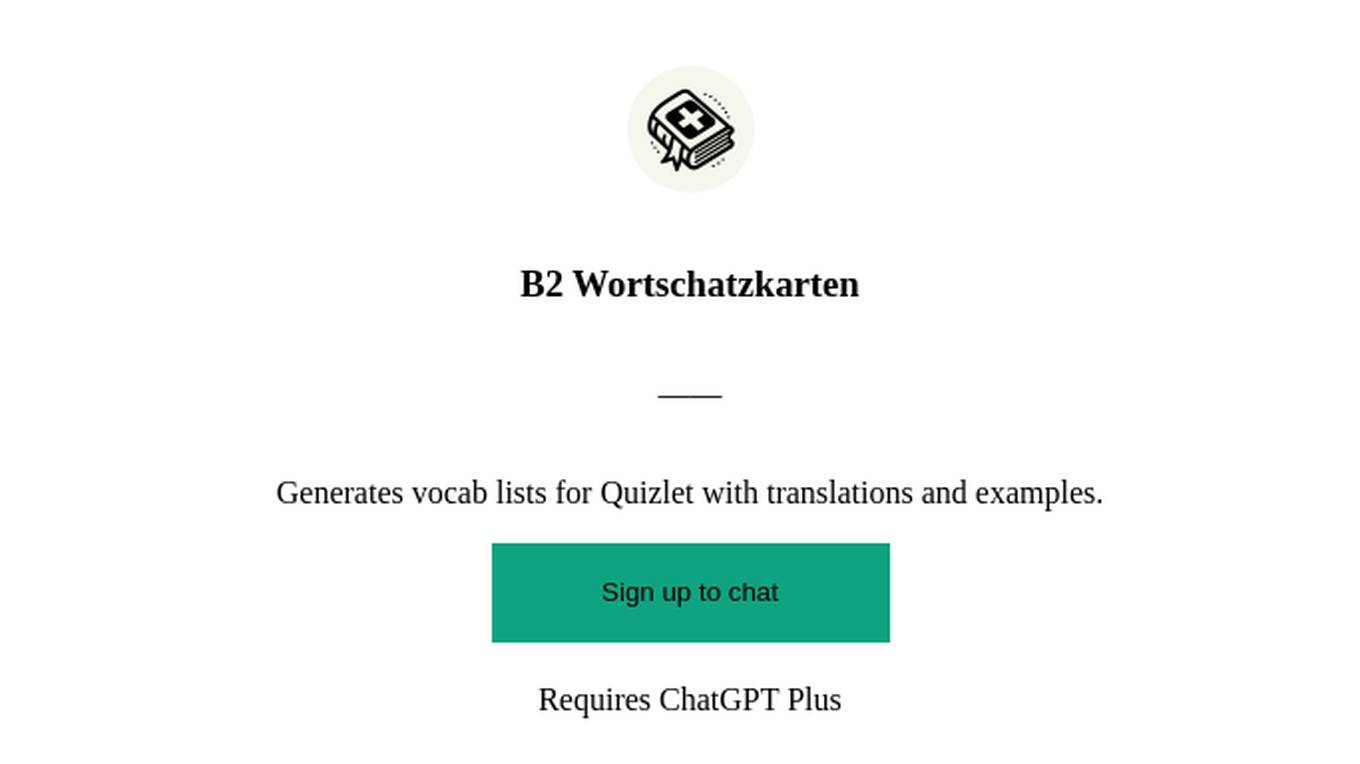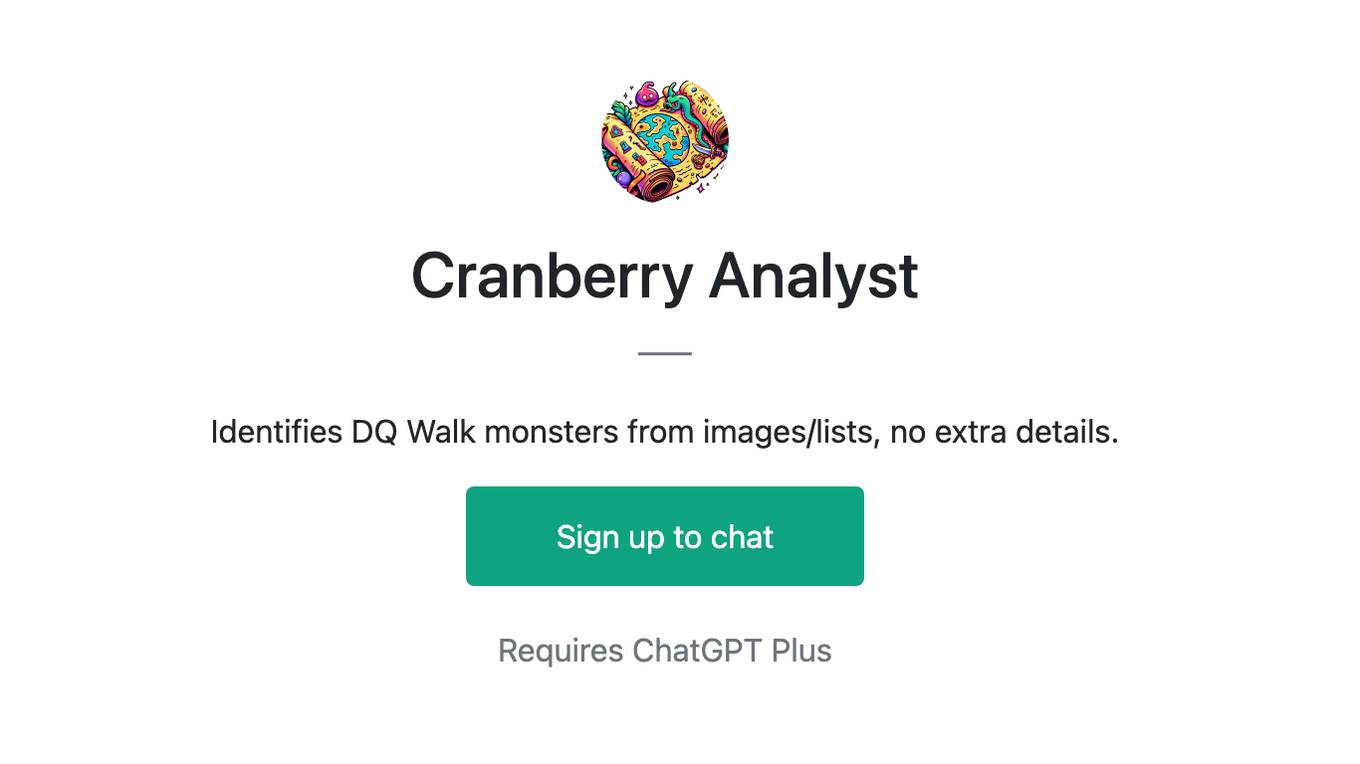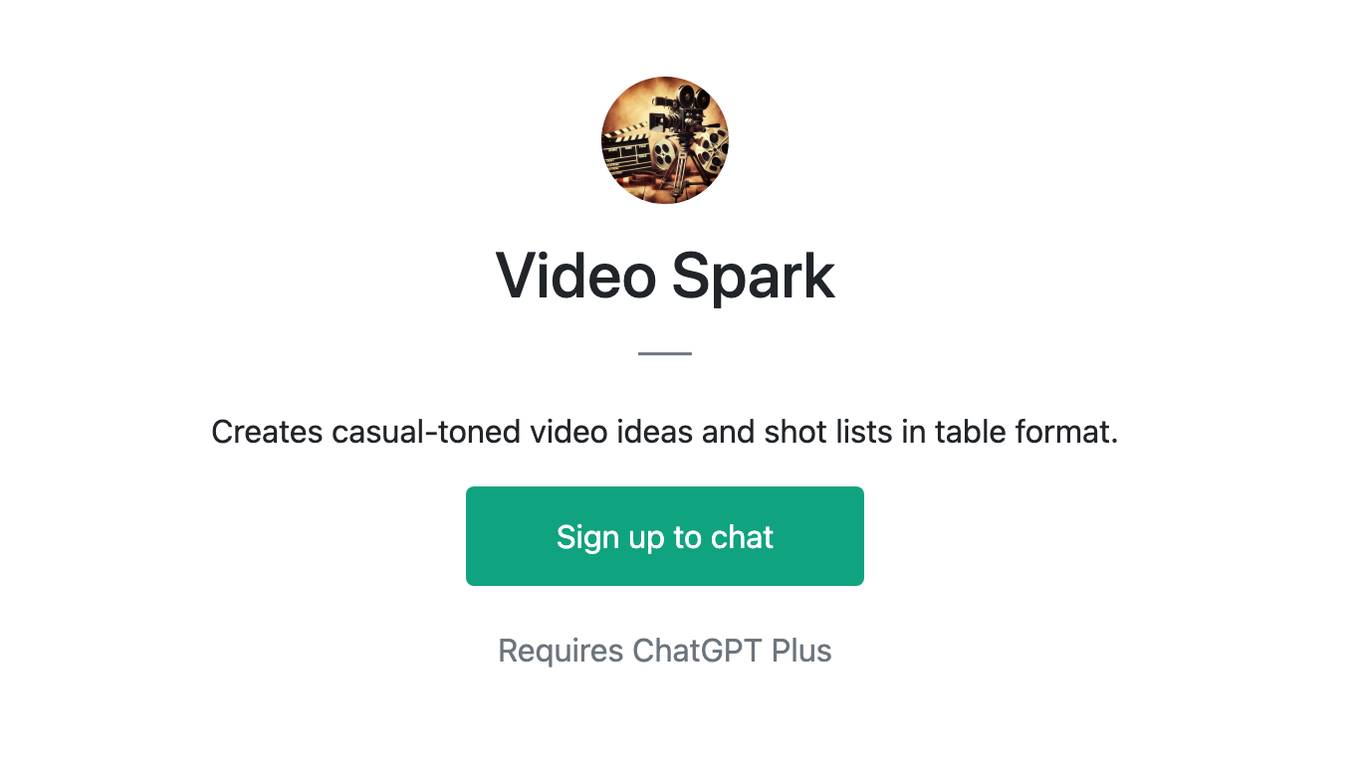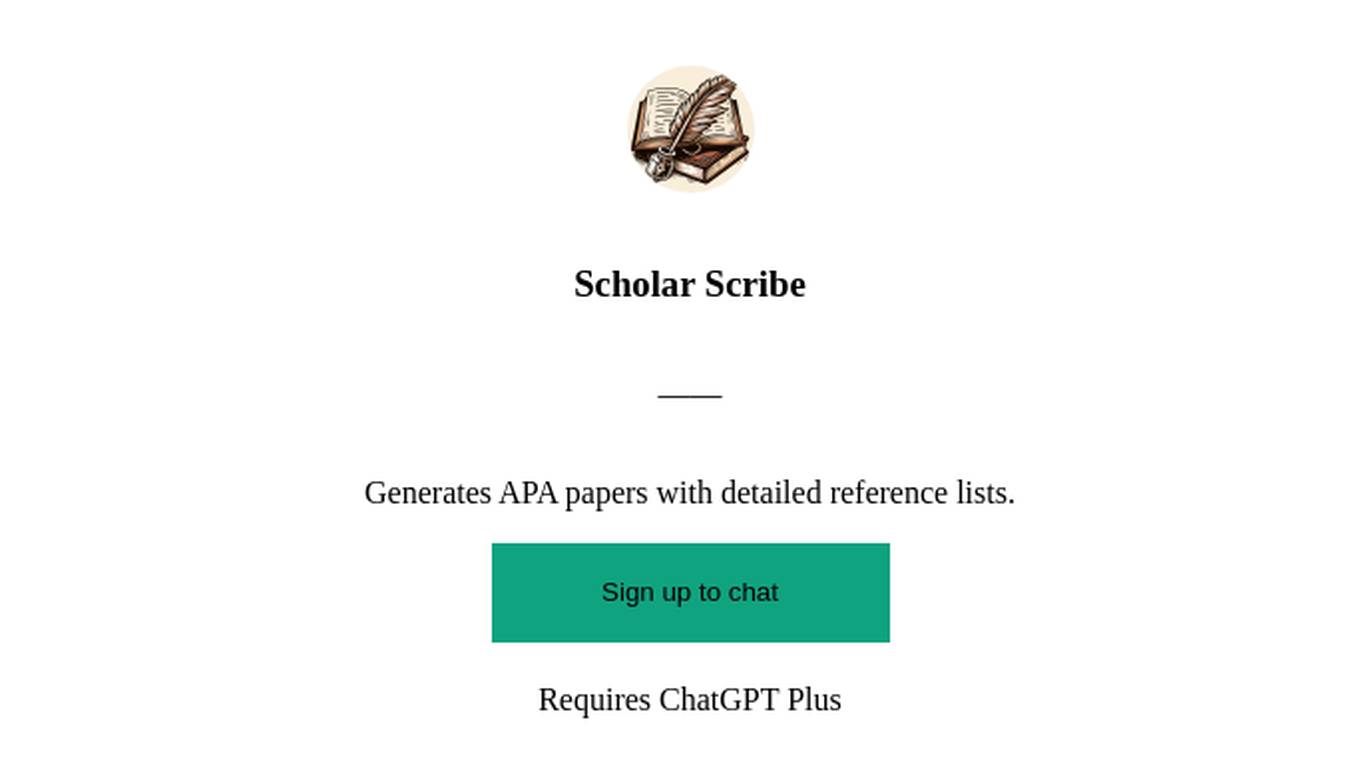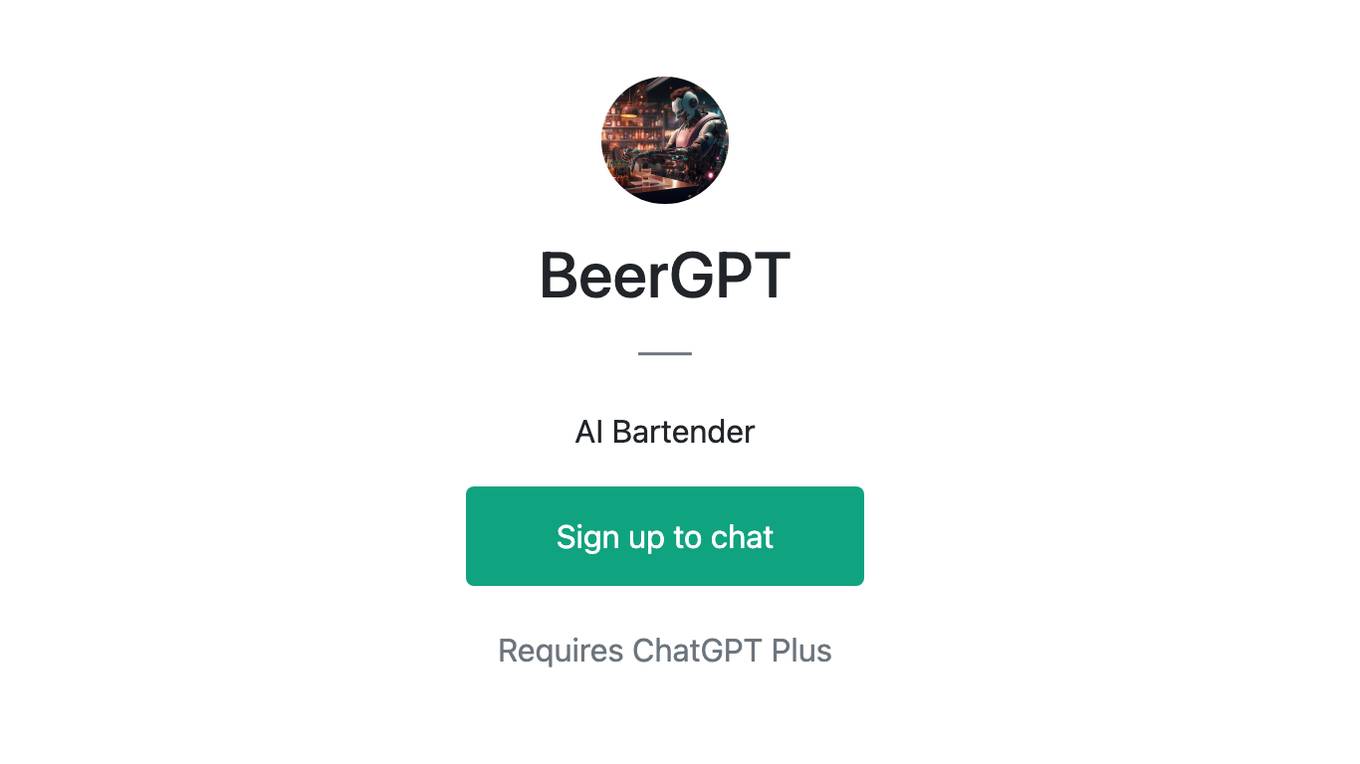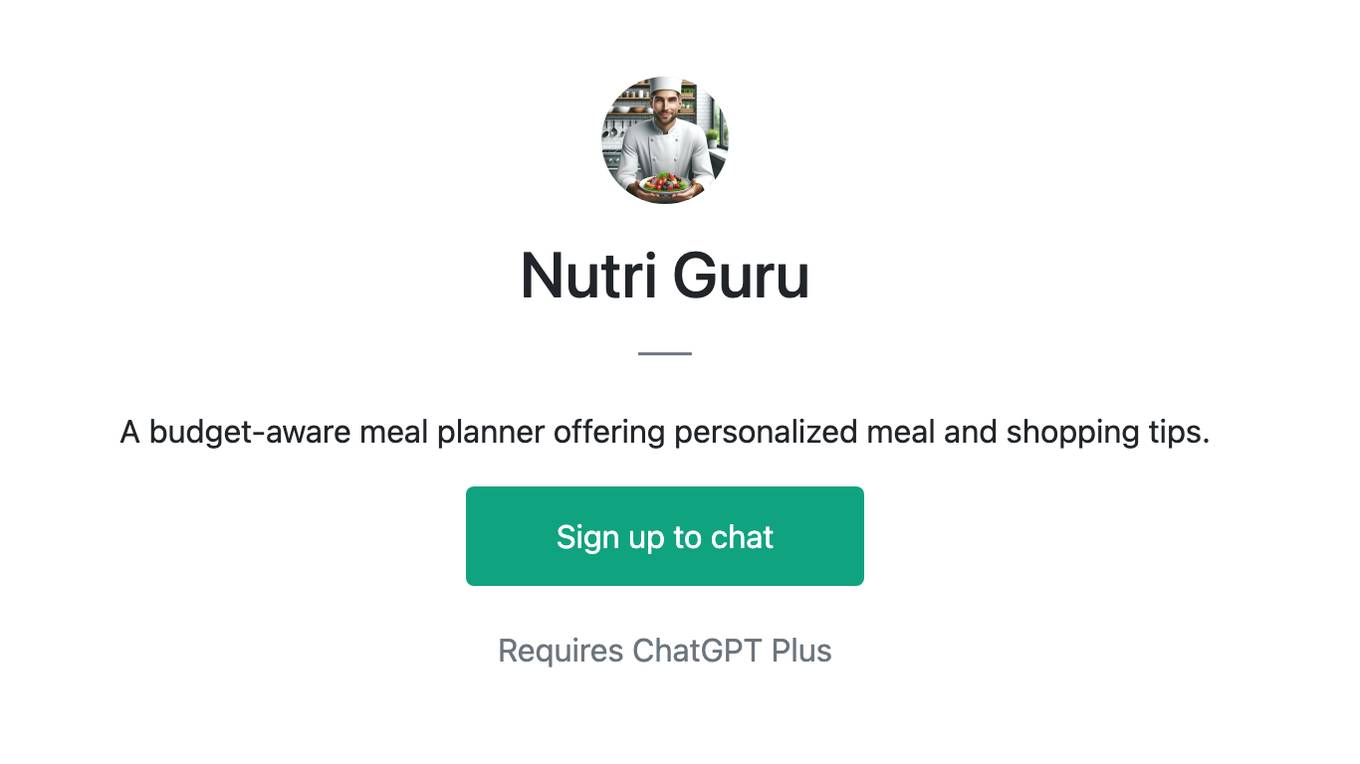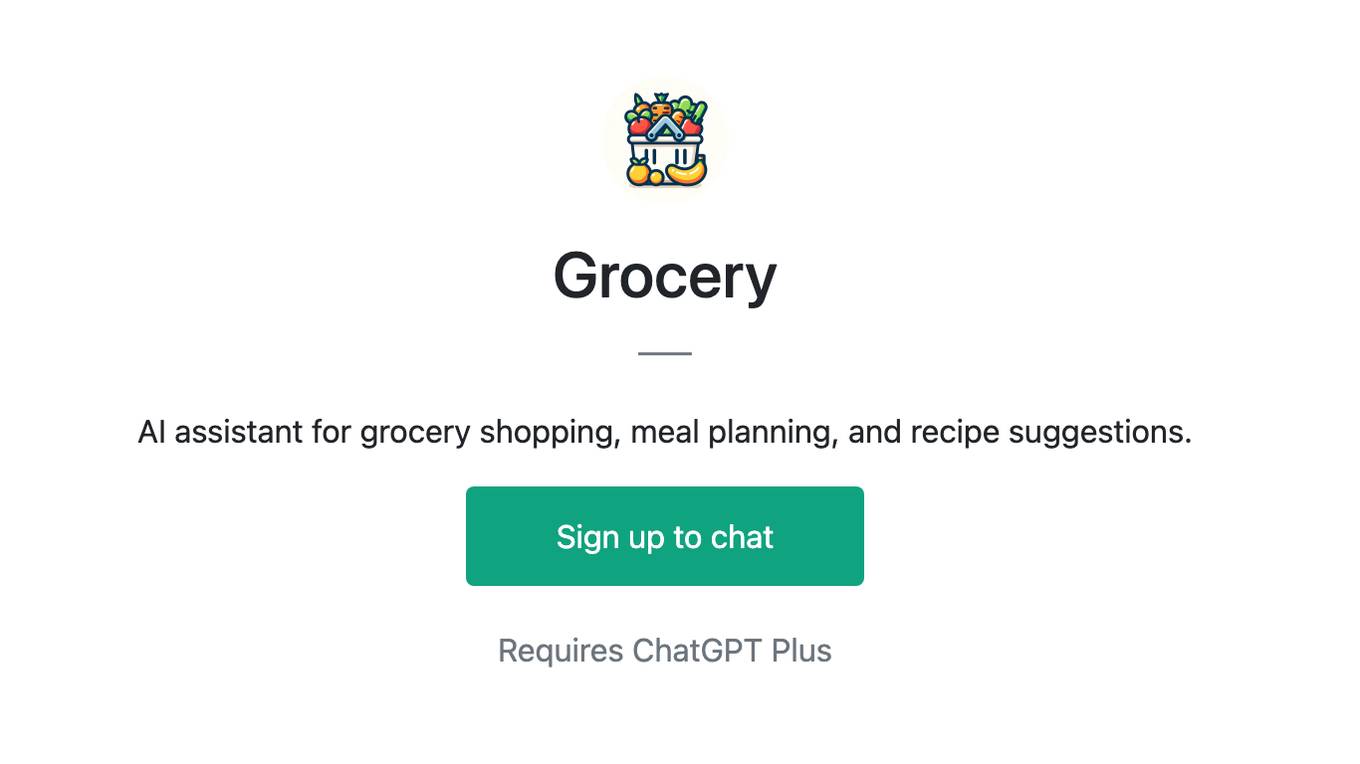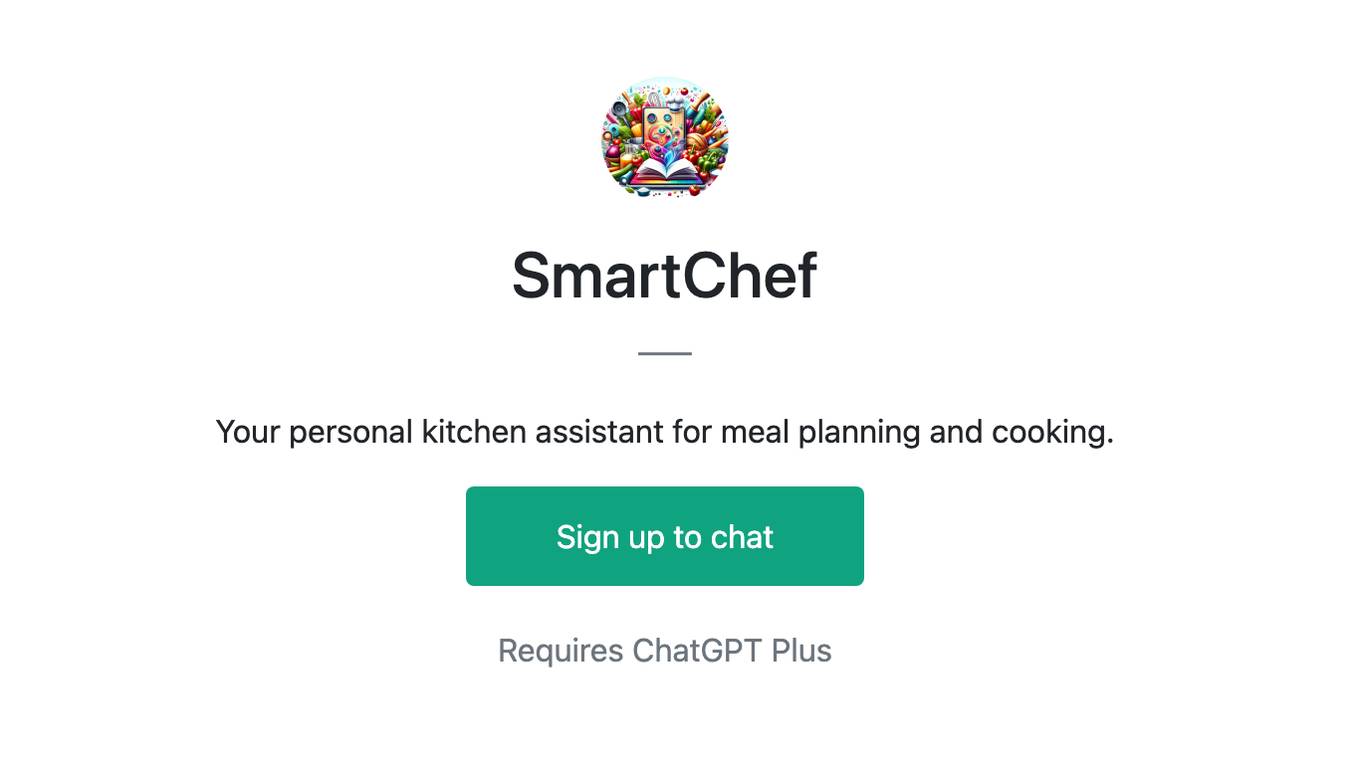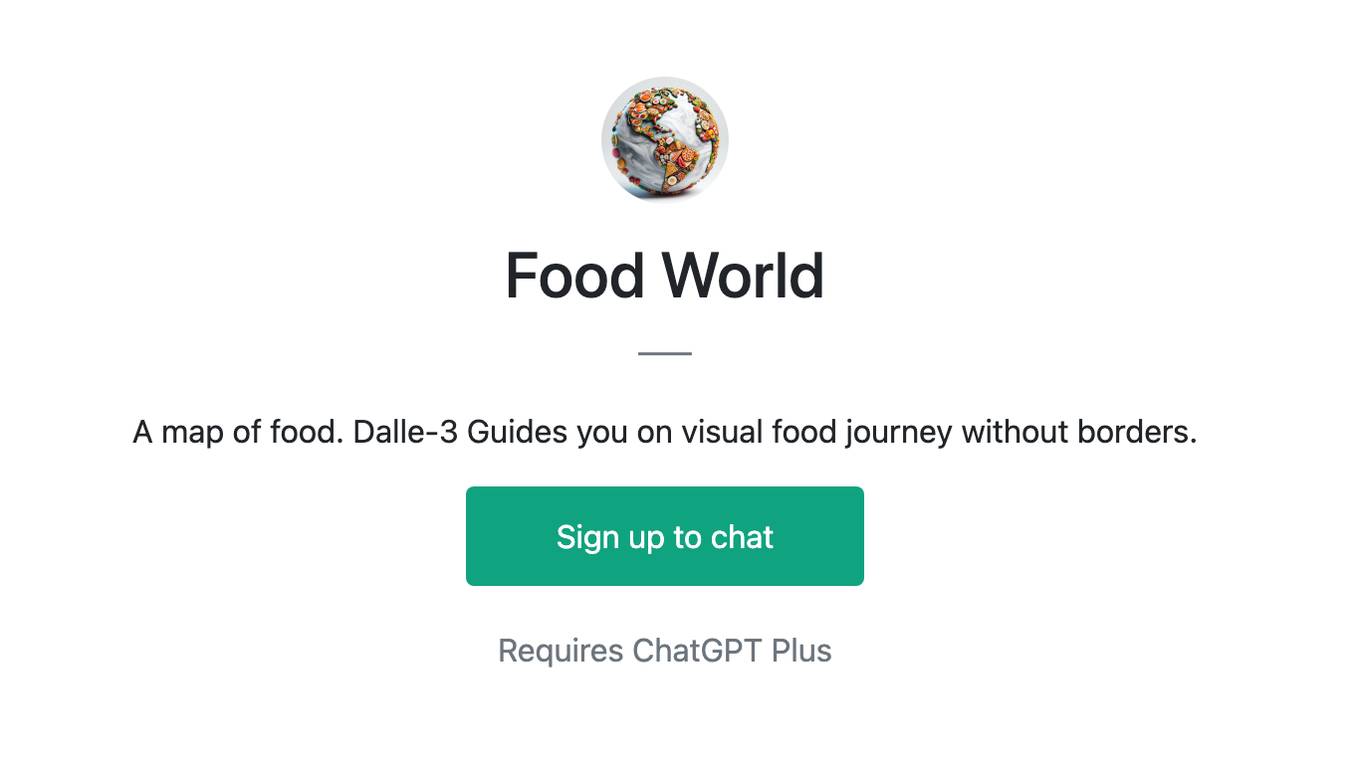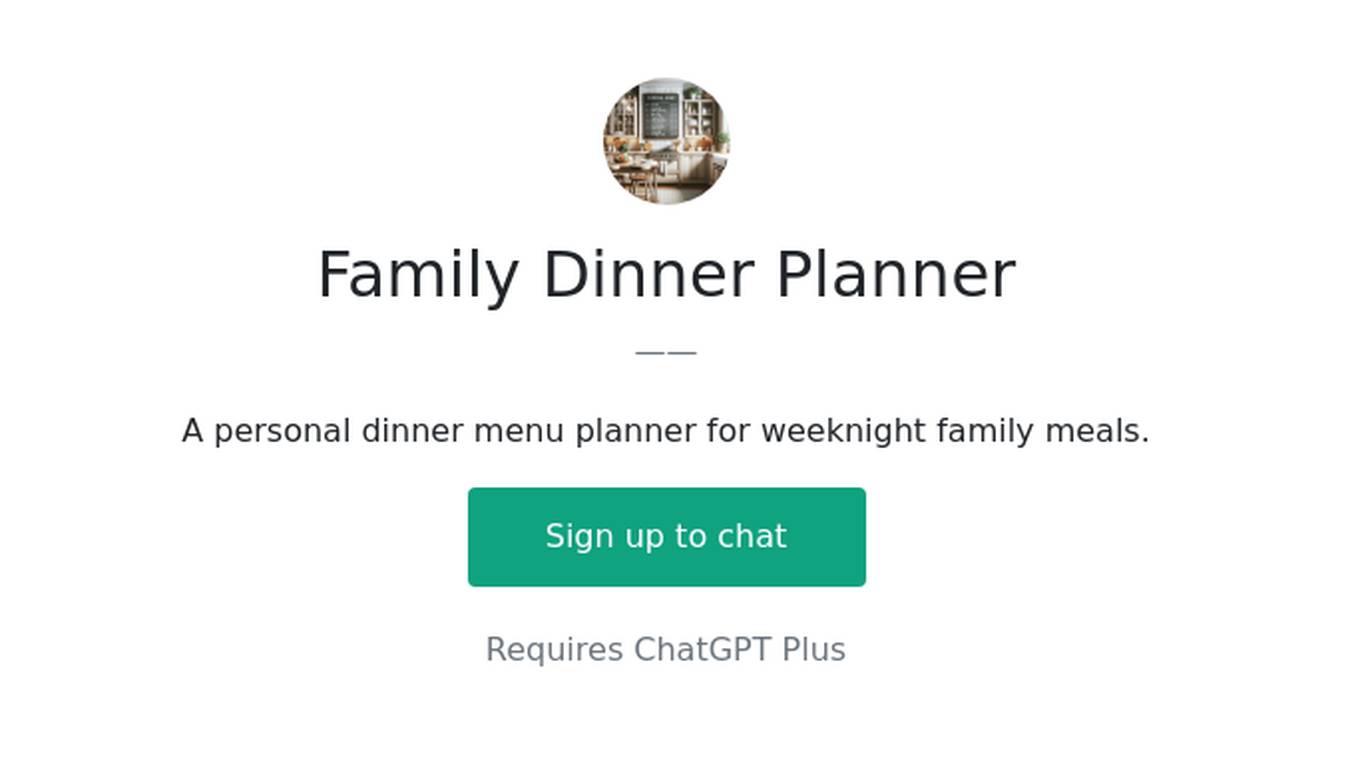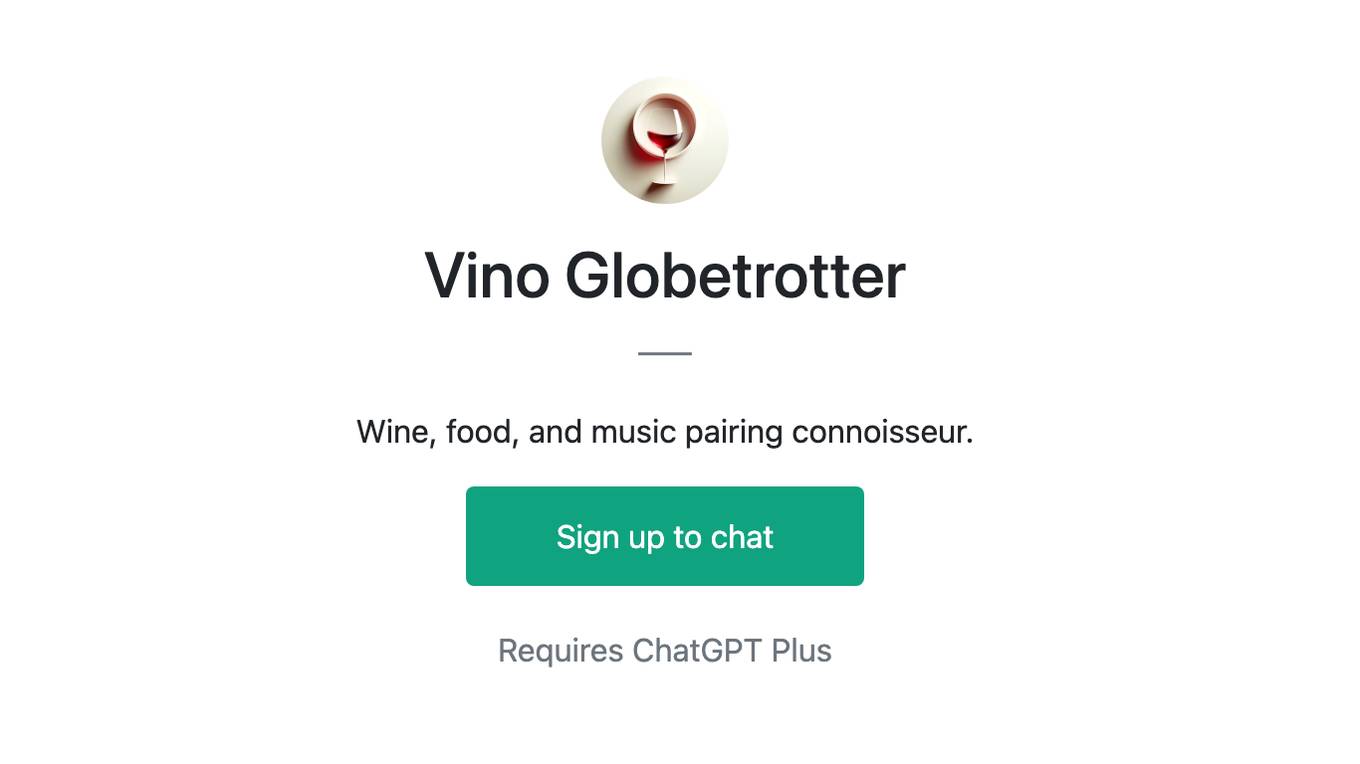Best AI tools for< Create Lists >
20 - AI tool Sites
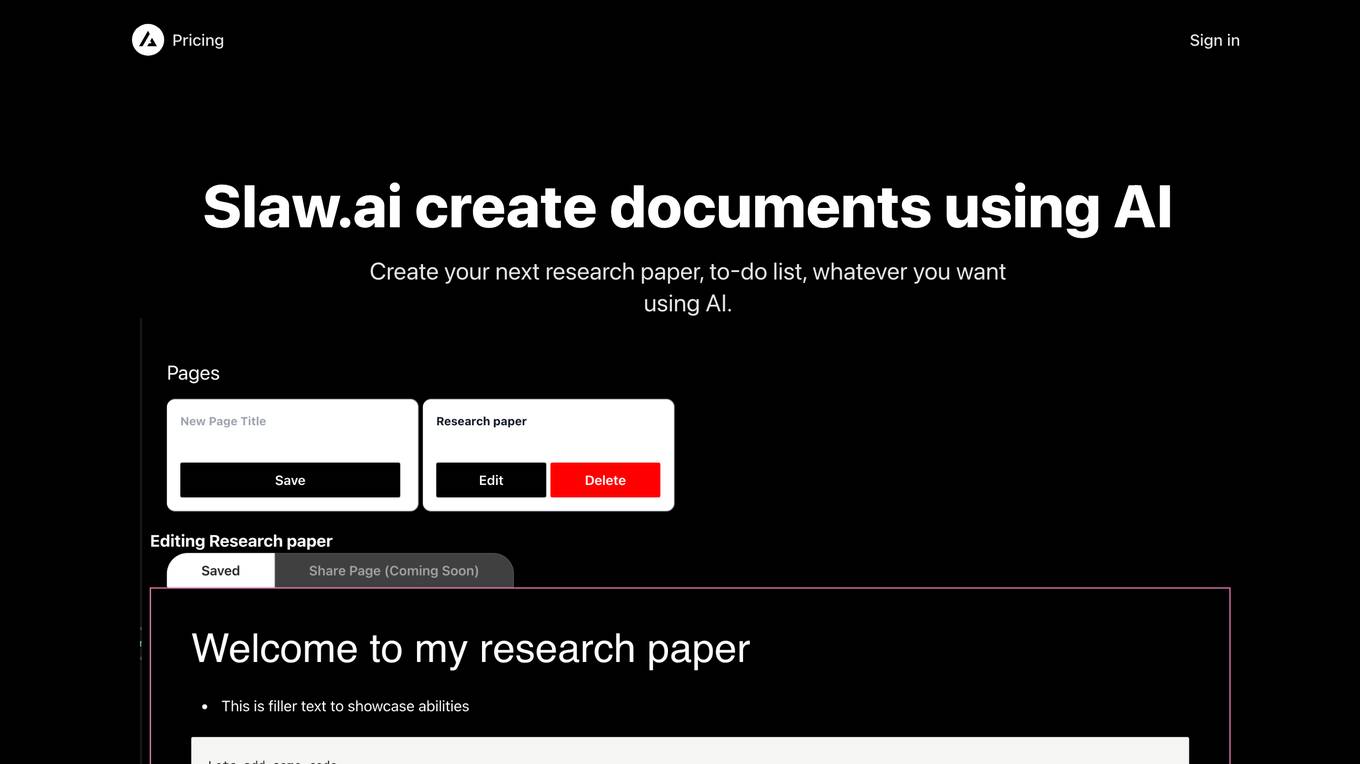
Slaw.ai
Slaw.ai is an AI-powered platform that allows users to create documents using advanced AI technology, including GPT-4. Users can generate various types of documents such as research papers, to-do lists, and more with the help of AI. The platform offers different pricing plans for users to access AI writing capabilities, document sharing features, and more. With Slaw.ai, users can easily create content using AI technology, making the document creation process more efficient and convenient.
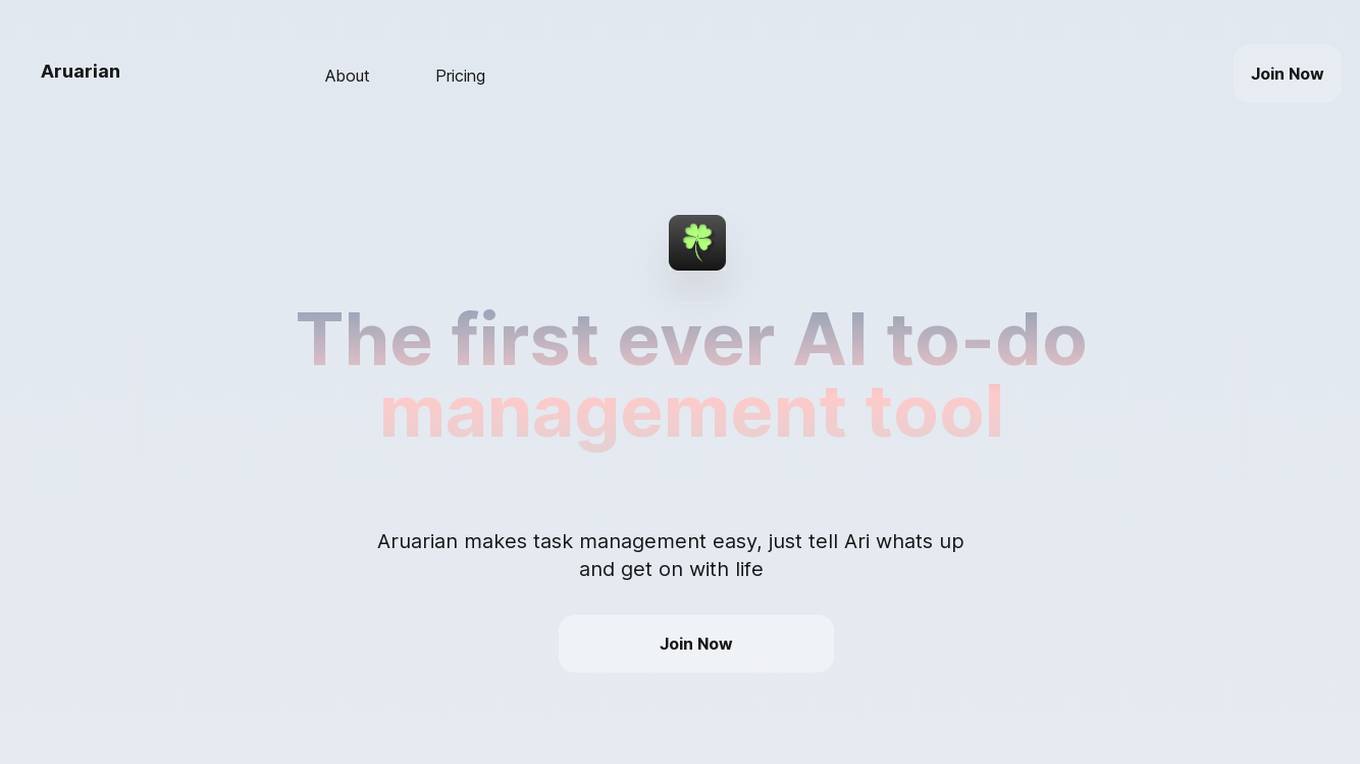
Aruarian
Aruarian is an AI-powered task management tool that makes task management easy. It can add new todos for you, create lists for you, and find you specific information on the fly. Aruarian is still in its early days, but it is already a powerful tool that can help you save time and be more productive.
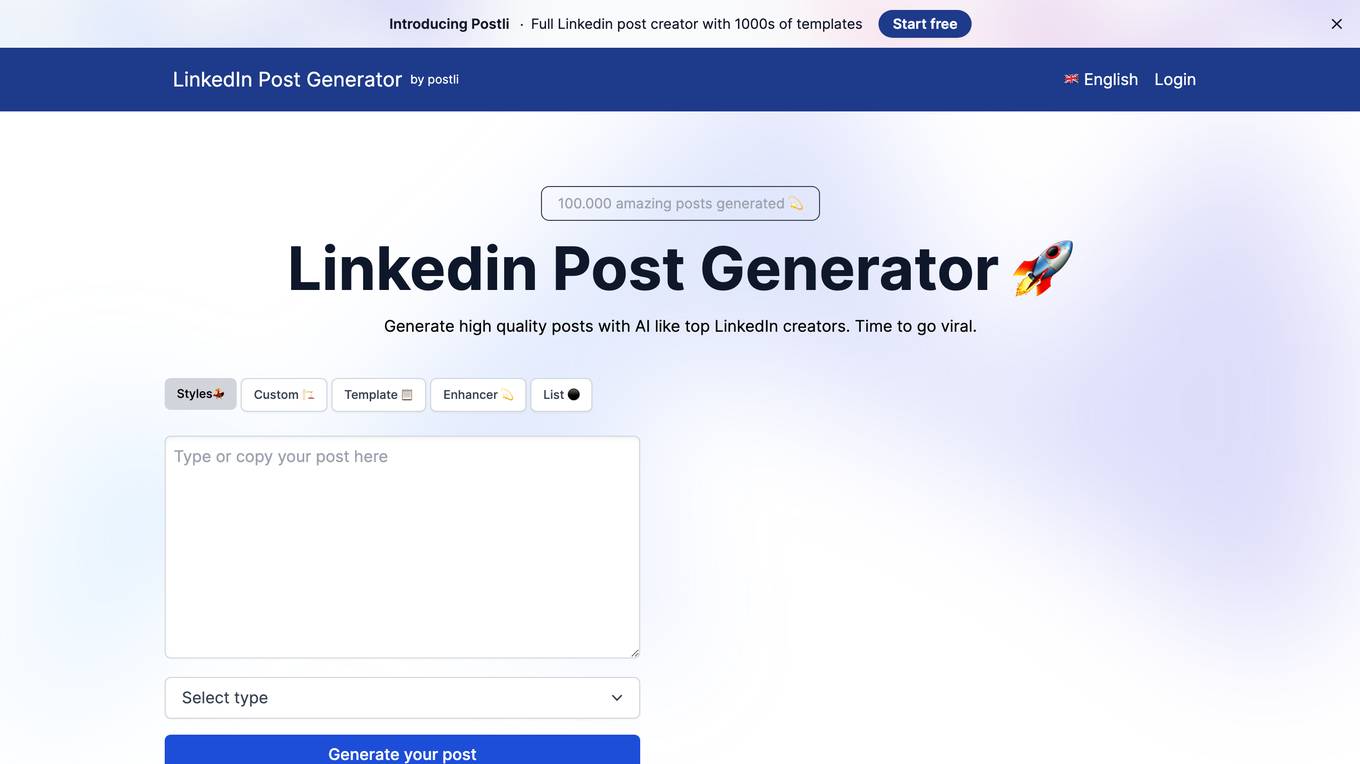
Postli
Postli is a LinkedIn post generator that helps users create high-quality posts using AI. It offers a variety of features, including the ability to generate posts using styles from top LinkedIn creators, use custom prompts, generate posts based on examples, enhance posts, and create lists of books, companies, and others for posts. Postli is powered by ChatGPT and Vercel Edge Functions.
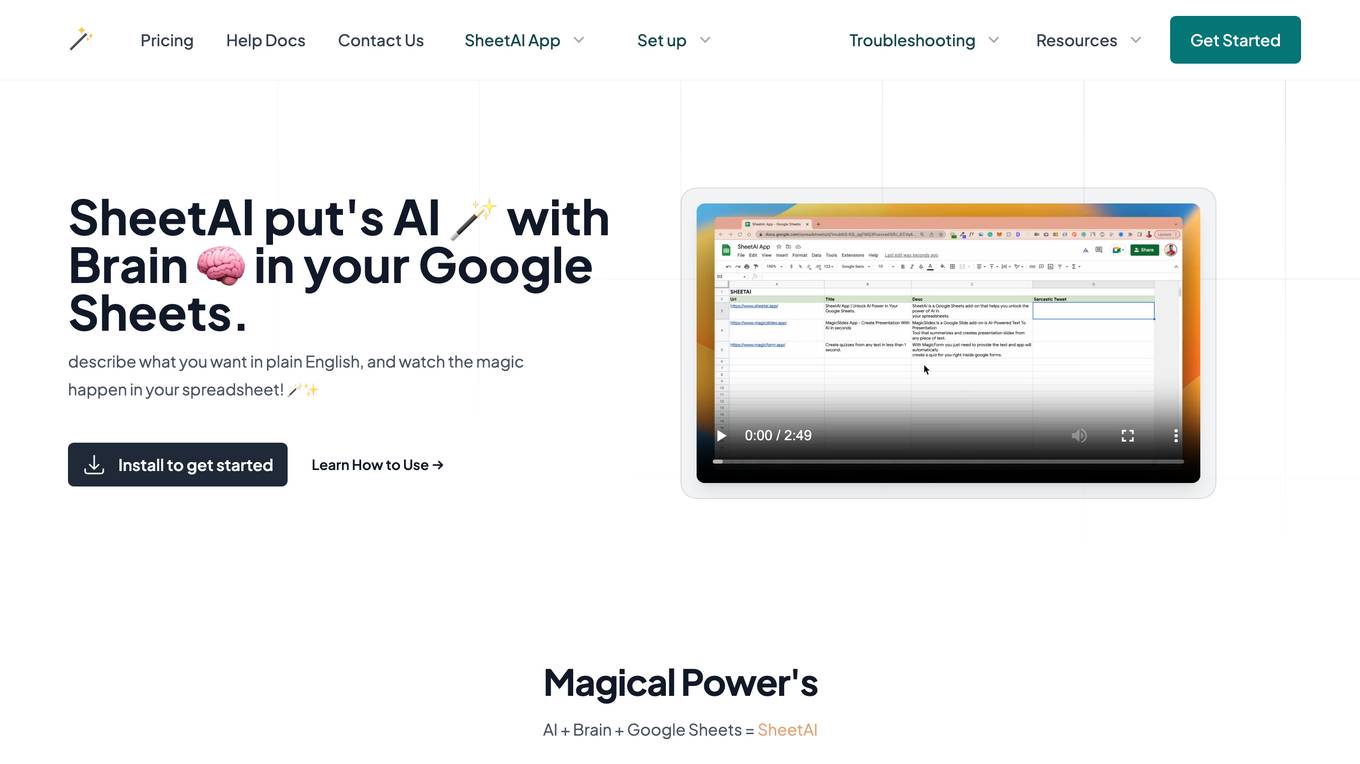
SheetAI
SheetAI is an AI application that integrates with Google Sheets to provide users with a suite of AI-driven functions to automate tasks, generate insights, and simplify copywriting. Users can describe tasks in plain English and let the AI handle repetitive tasks, create lists, tables, and more. The application is trusted by universities, companies, and professionals, offering a seamless experience for enhancing productivity and efficiency within Google Sheets.
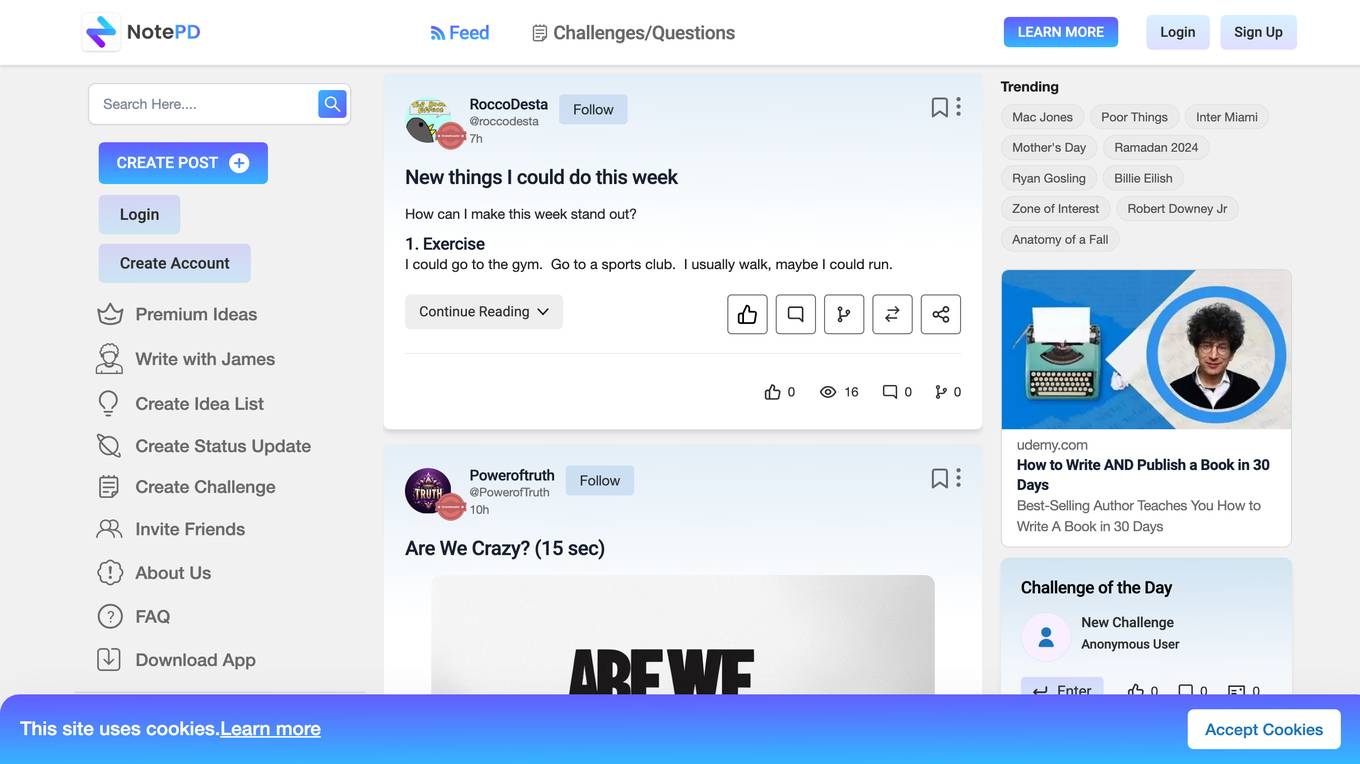
NotePD
The website is a platform where users can create idea lists, status updates, challenges, and interact with other users through posts and comments. It also offers premium features like writing with James and inviting friends to join. Users can follow other users, view recent posts, and participate in challenges. The website provides a space for sharing thoughts, ideas, and experiences with a community of like-minded individuals.
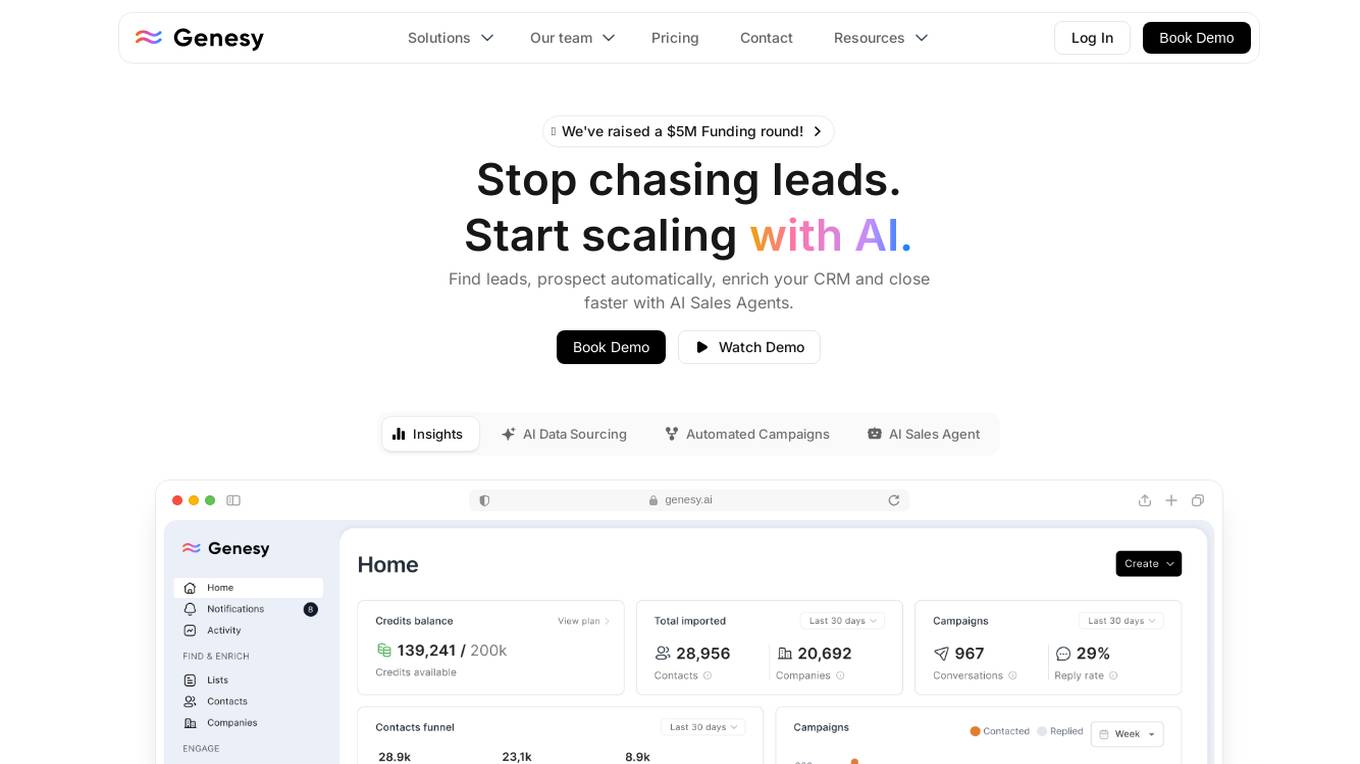
Genesy
Genesy is an AI-powered sales intelligence platform that helps businesses find leads, automate outbound sales, and close deals faster. It offers AI data sourcing, social prospecting, data enrichment, intent signals, and sales intelligence solutions to enhance sales processes. Genesy's AI Sales Agents assist in automating outreach, email automation, and deliverability optimization. The platform also provides AI-powered data research, analytics, and a playbook for sales professionals to optimize their sales strategies.
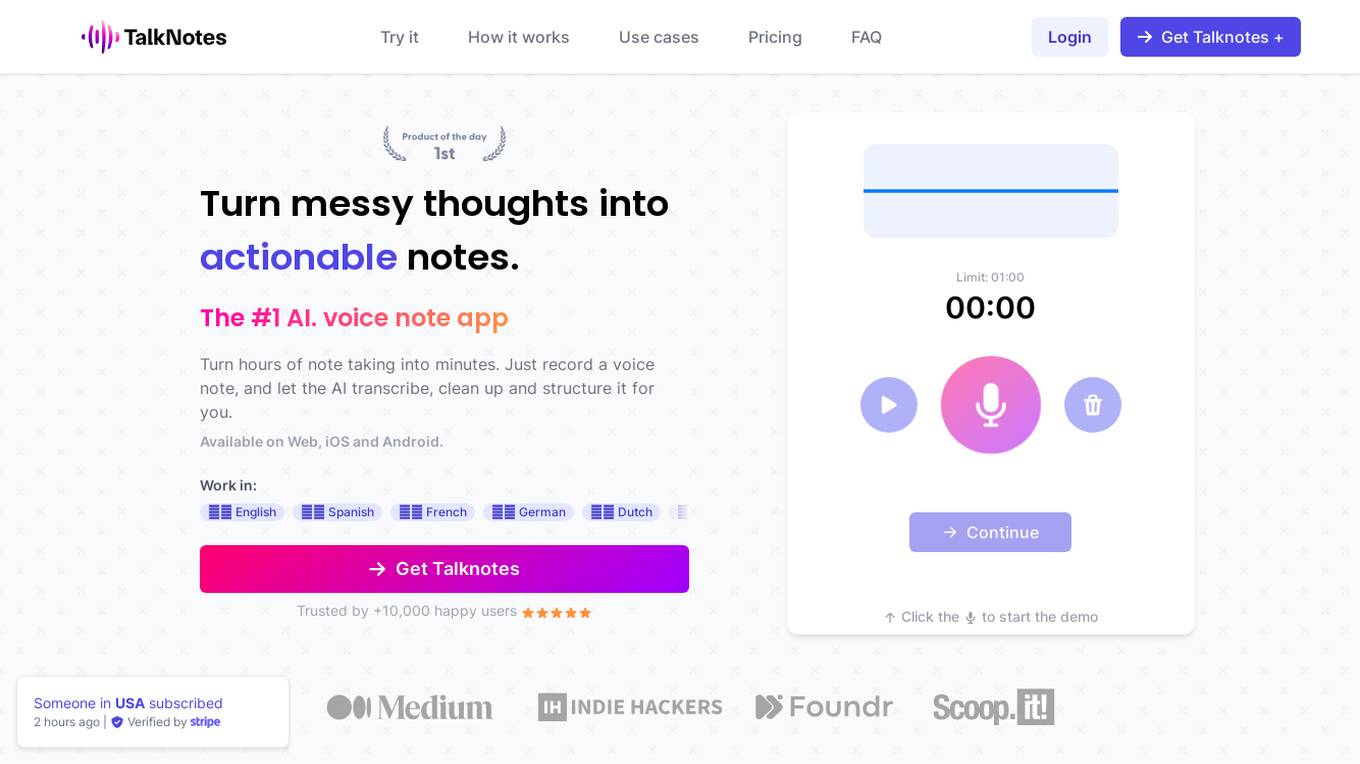
Talknotes
Talknotes is the #1 AI voice note app that allows users to easily convert their voice notes into actionable and structured content. Users can record their thoughts and ideas, and let the AI transcribe, clean up, and organize the content for them. The application supports multiple languages and offers various styles for transforming voice notes into different types of content, such as blog posts, task lists, and journal entries. With Talknotes, users can streamline their note-taking process and enhance productivity in various tasks, from brainstorming to content creation.
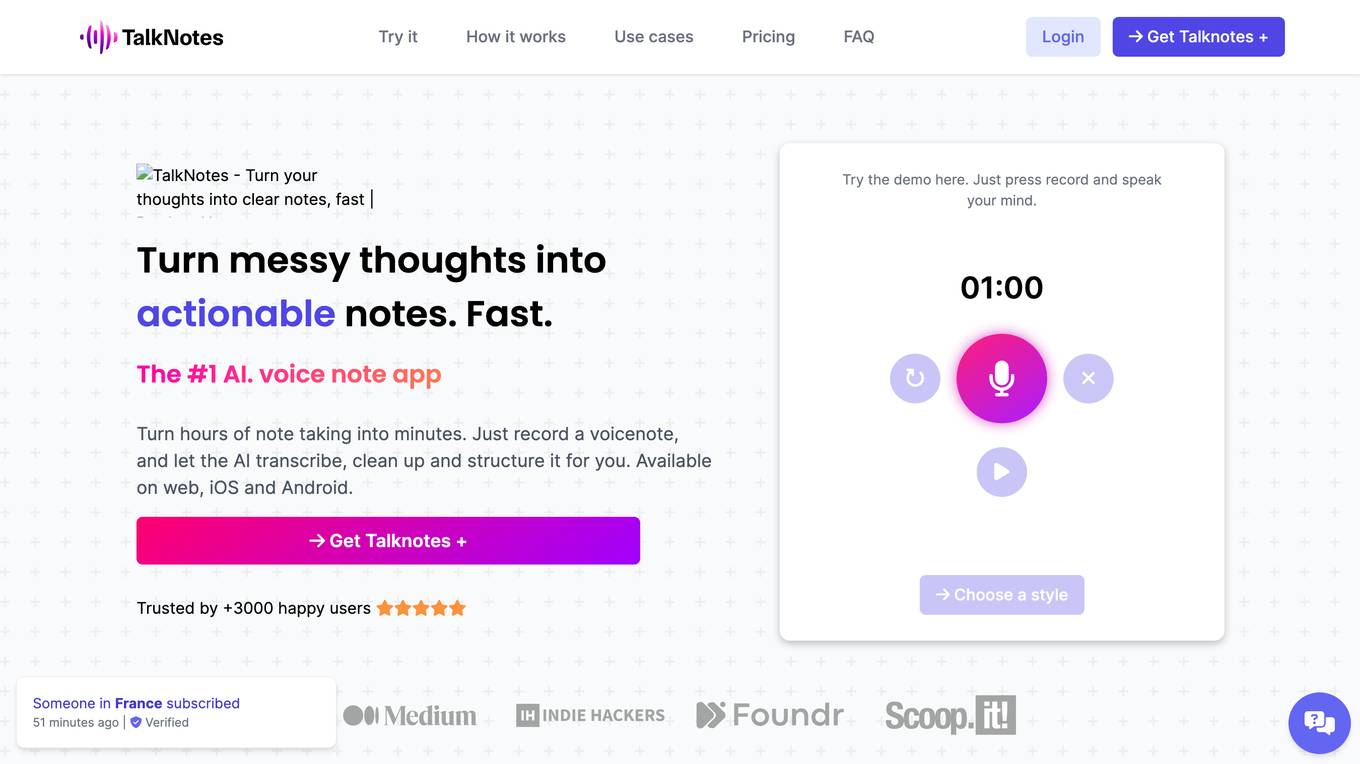
Talknotes
Talknotes is the #1 AI voice note app that transforms messy thoughts into actionable notes. Users can record voice notes and let the AI transcribe, clean up, and structure them. The app supports multiple languages and offers various styles for transcribing voice notes into different formats like blog posts, task lists, and more. With Talknotes, users can effortlessly brainstorm, create content, journal, transcribe interviews, and improve meeting efficiency. The application is trusted by over 10,000 happy users and offers both monthly and yearly pricing plans with secure payment options.
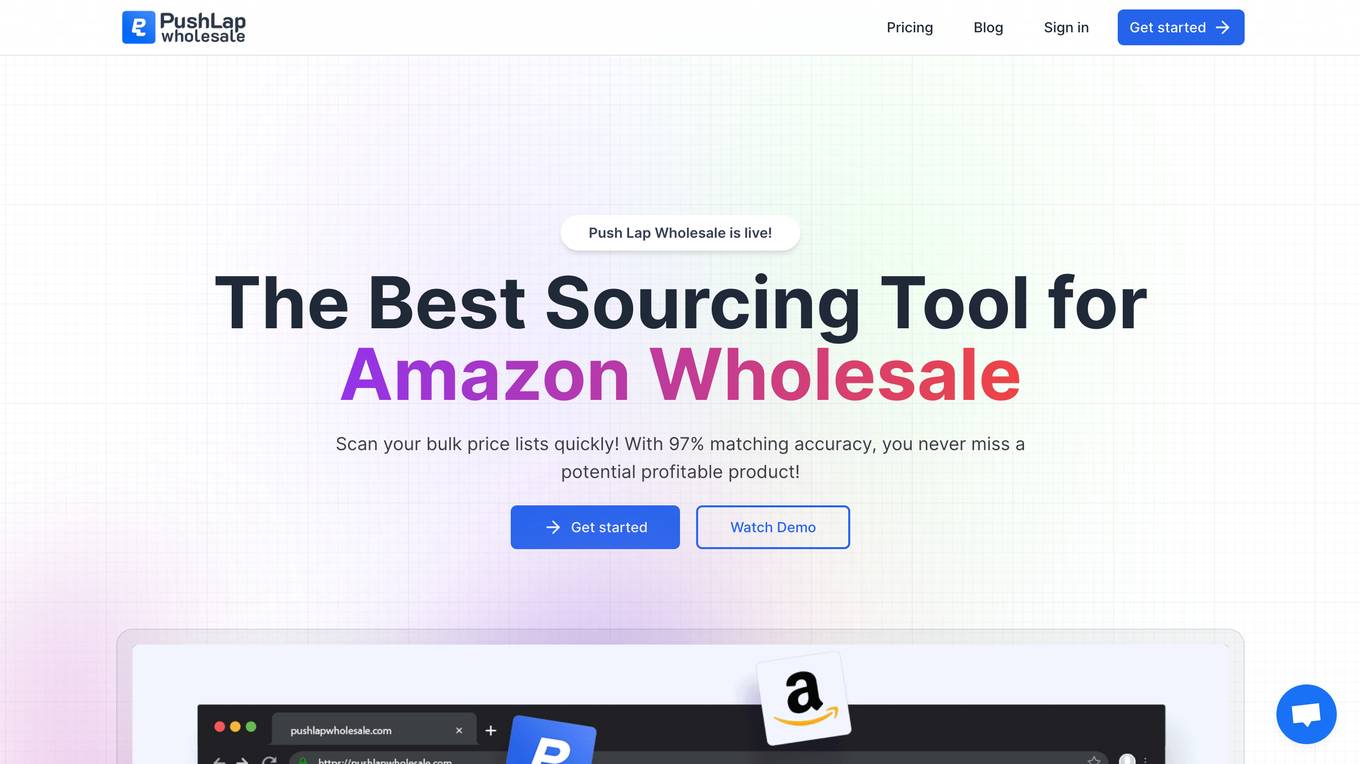
Push Lap Wholesale
Push Lap Wholesale is a powerful Amazon wholesale sourcing tool that helps you find profitable products, save time, and hit your targets. With 97% matching accuracy, you can quickly scan your bulk price lists and never miss a potential profitable product. Our world-class platform provides you with detailed product information, including Keepa charts, historical averages, profit calculations, variation data, competition analysis, and multipack adjustments. You can also create and manage suppliers' purchase lists, export them as CSV files, and get the total cost and profit of each list. Additionally, we provide you with 500+ auto-ungate ASINs for free and access to a list of over 4,000 vetted and verified distributors with contact details.
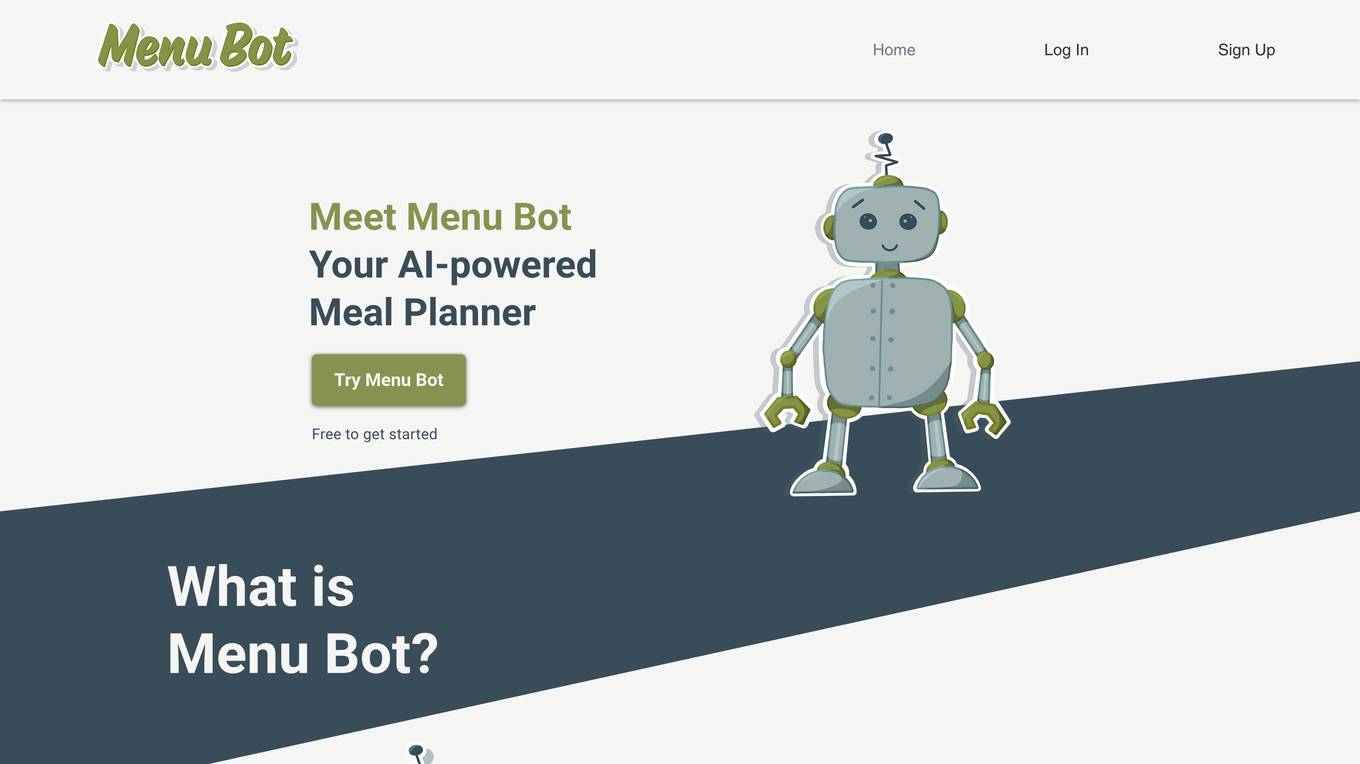
Menu Bot
Menu Bot is an AI-powered meal planner that offers personalized meal plans, grocery list creation, and recipe management. It helps users track their nutritional goals and provides customizable features to suit individual needs. With Menu Bot, users can transform meal prep from a chore to a joy by receiving tailored meal plans, organizing favorite recipes, and calculating meal macros. The platform allows full control and customization, empowering users to adjust their meal plans, grocery lists, and recipes according to their preferences and dietary requirements.
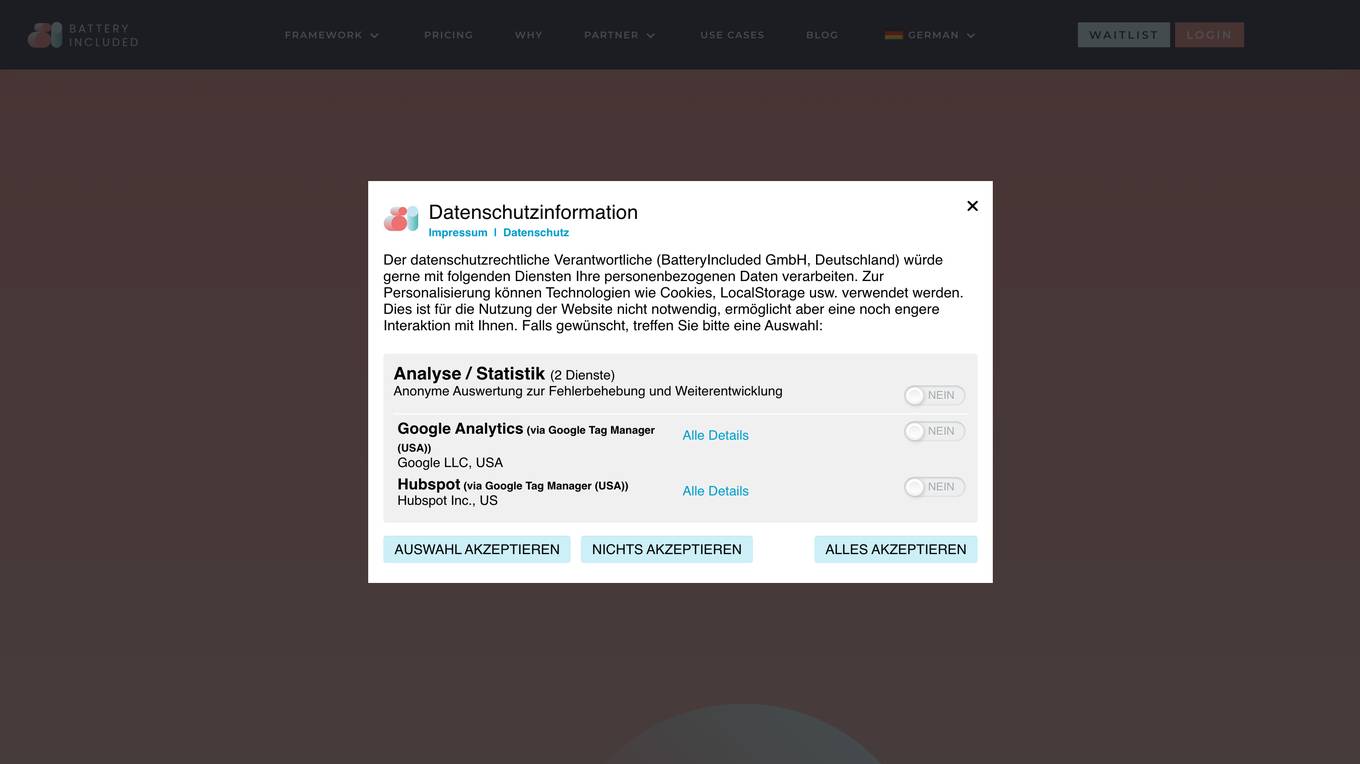
BatteryIncluded
BatteryIncluded is an AI-powered data discovery framework that helps businesses create highly relevant product lists for their online stores. It uses real-time raw data aggregation, advanced AI algorithms, and natural language processing to deliver personalized shopping experiences for users. BatteryIncluded's modular architecture and flexible API allow for easy integration with existing systems and headless frontends, providing businesses with full control and flexibility.
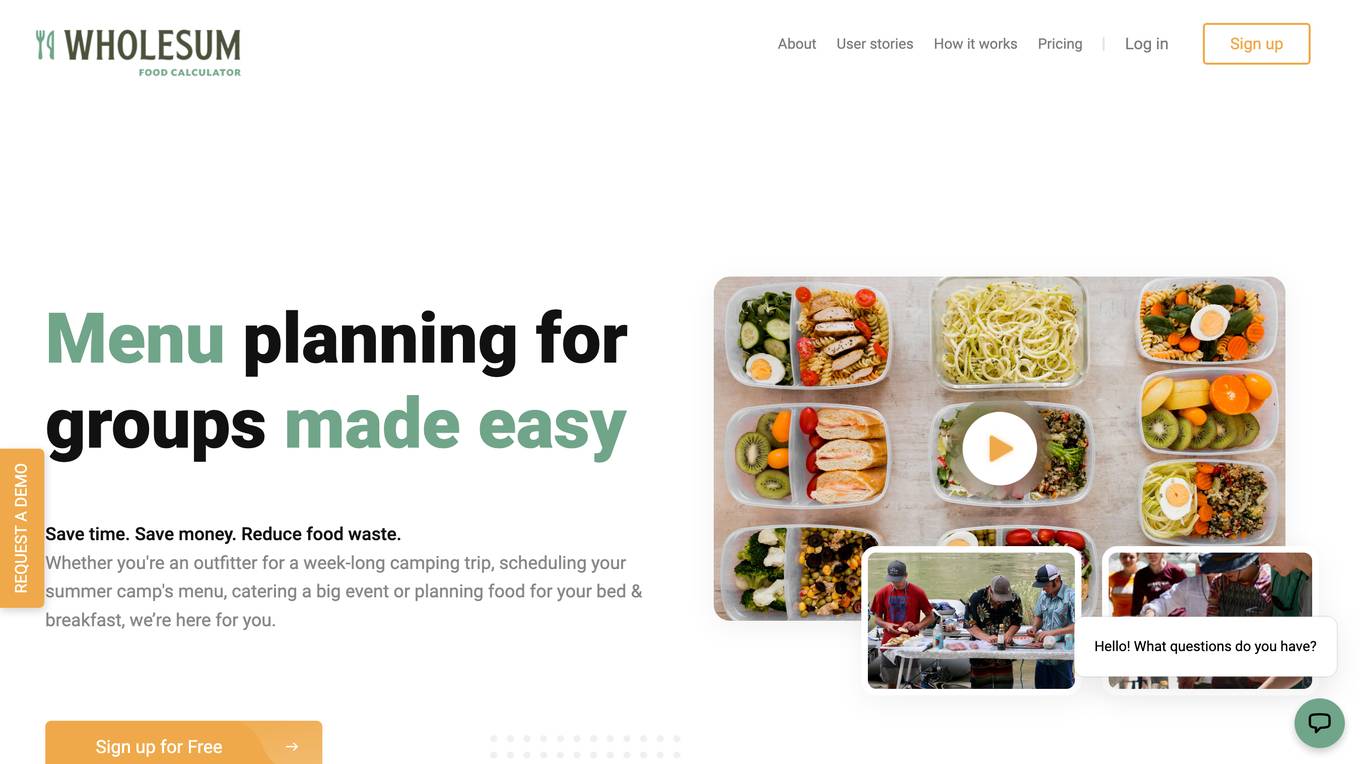
Wholesum
Wholesum is a group menu planning and shopping list tool that helps users save time, money, and reduce food waste. It allows users to easily adjust for dietary restrictions, group size, and duration. Wholesum also generates shopping lists and provides AI-powered recipes. With Wholesum, users can create sharable meal plans, estimate costs, and organize their meals by date and category.
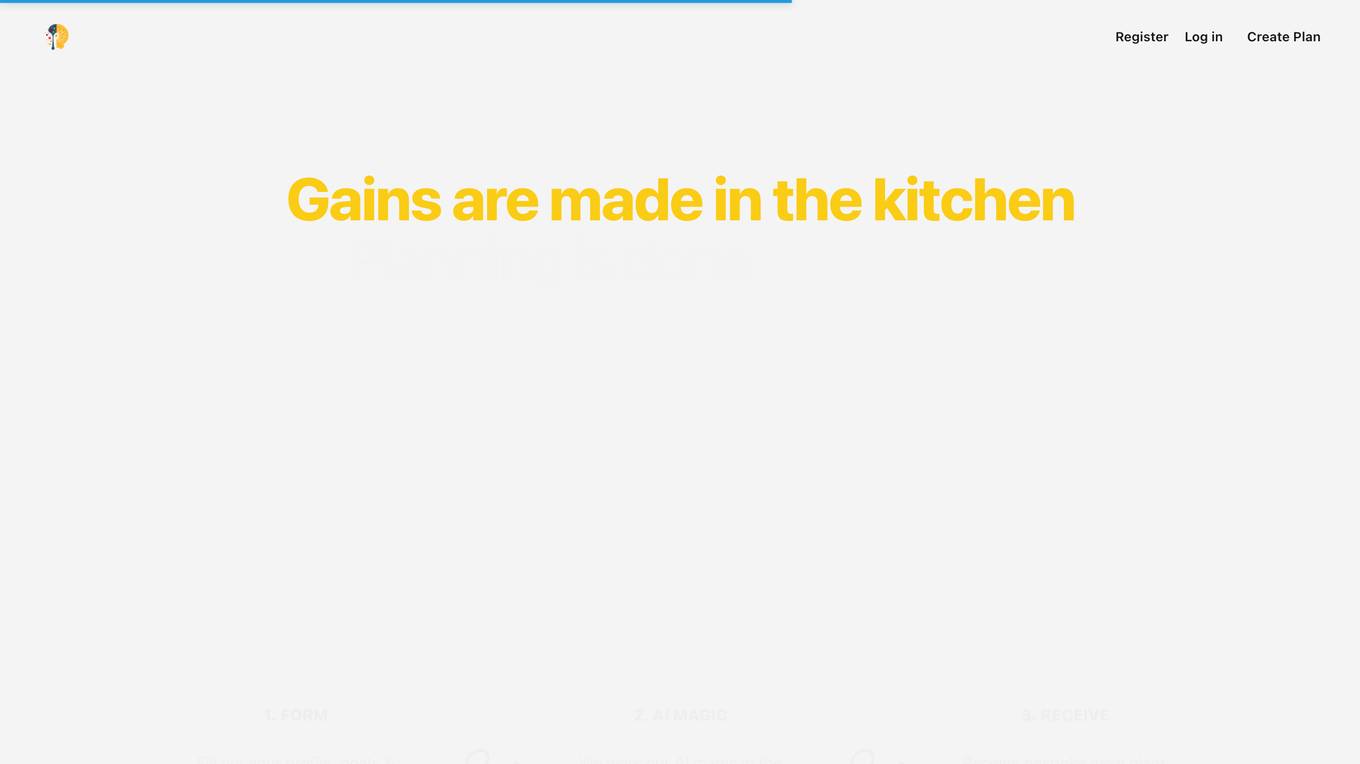
Mealmind
Mealmind is an AI-powered meal planning and nutrition tracking application that helps users optimize their nutrition and achieve their health and fitness goals. It provides personalized meal plans, interactive shopping lists, and tailored recipes based on individual dietary requirements, food preferences, and body goals. The application leverages AI algorithms to analyze user profiles, goals, and dietary restrictions to generate customized meal plans that meet their specific needs. Mealmind also offers an interactive shopping list that simplifies grocery shopping by providing a tailored list of ingredients required for the meal plan. Additionally, the application includes a recipe section with step-by-step instructions to guide users through the cooking process, making it easy for individuals to prepare delicious and nutritious meals at home.
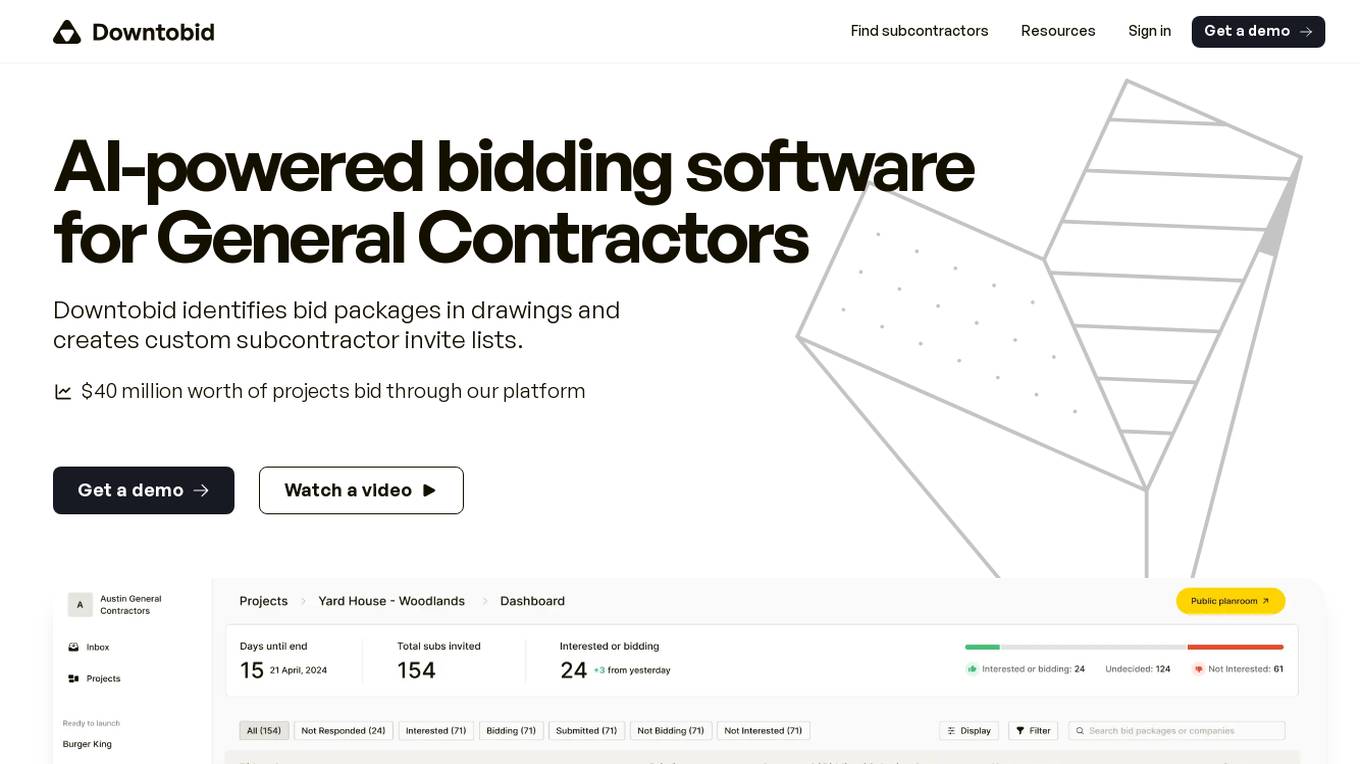
Downtobid
Downtobid is an AI-powered bidding software designed for General Contractors. It helps in turning construction plans into Bid Invites in minutes by identifying bid packages in drawings, creating custom subcontractor invite lists, and streamlining bidding processes. The platform offers features like AI-powered scope reviews, smart planroom creation, project-specific sublists, personalized email communication, and real-time contractor data. Downtobid aims to save time, improve bid responses, and enhance project success by leveraging artificial intelligence technology.
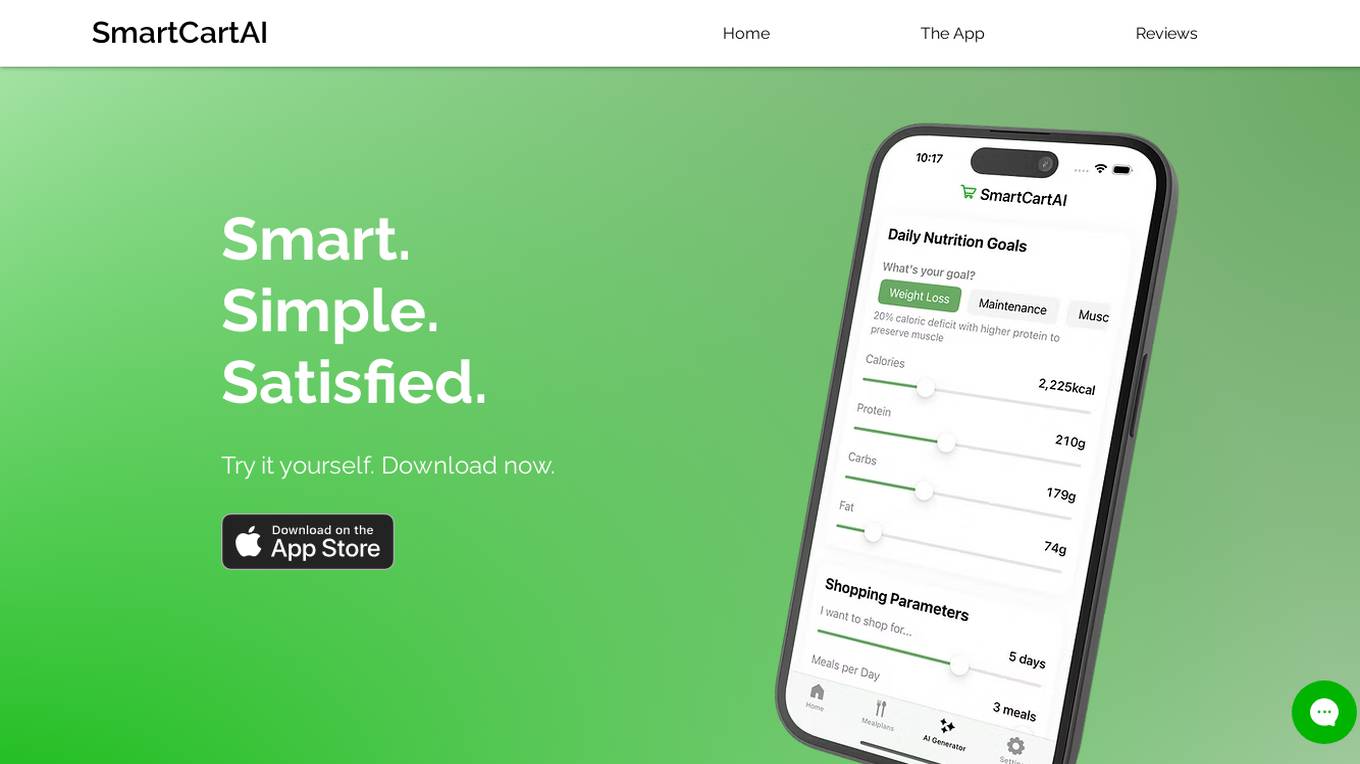
SmartCartAI
SmartCartAI is an innovative AI-powered application designed to revolutionize the grocery shopping experience. It offers personalized recommendations based on individual shopping habits, dietary preferences, and nutritional goals. The app utilizes cutting-edge AI technology to suggest meal plans, create grocery lists, and make nutrient adjustments, all tailored to the user's lifestyle. SmartCartAI aims to streamline the shopping process, making it smarter and more efficient for users.
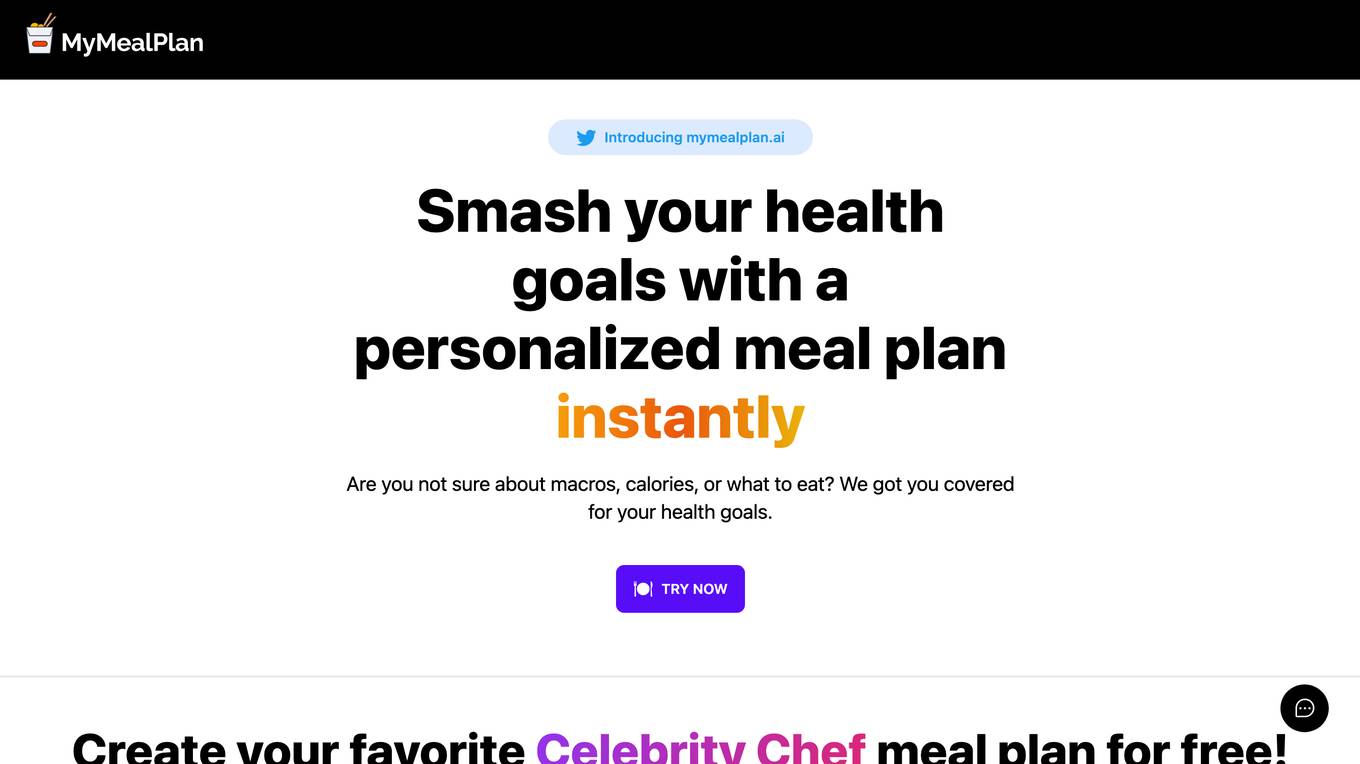
MyMealPlan
MyMealPlan is an AI-powered meal planning app that helps users create personalized meal plans based on their dietary preferences, allergies, and restrictions. The app offers a variety of recipes from celebrity chefs and curates a list of the best recipes from the web. MyMealPlan also provides users with a grocery list to make shopping for meals easier.
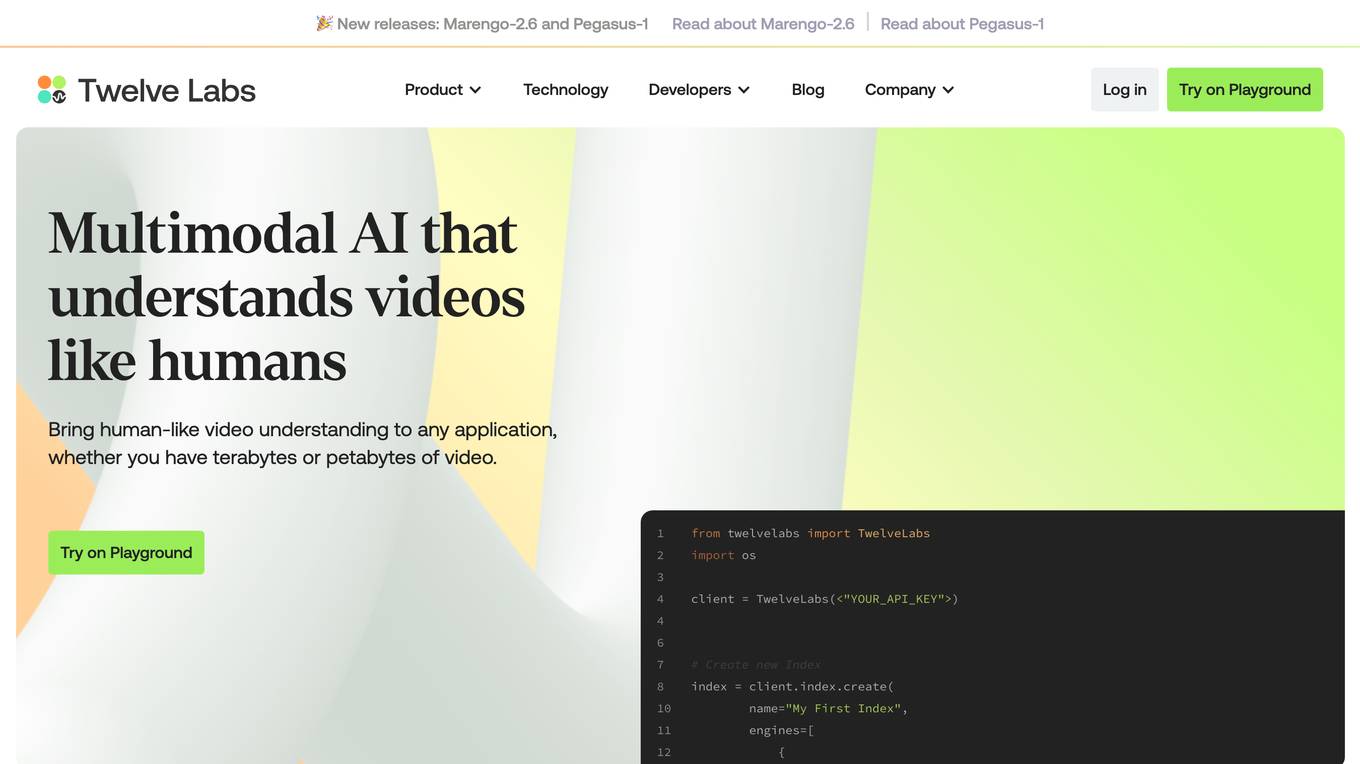
Twelve Labs
Twelve Labs is a cutting-edge AI tool that specializes in multimodal video understanding, allowing users to bring human-like video comprehension to any application. The tool enables users to search, generate, and embed video content with state-of-the-art accuracy and scalability. With the ability to handle vast video libraries and provide rich video embeddings, Twelve Labs is a game-changer in the field of video analysis and content creation.

AI Meal Planner
AI Meal Planner is a personalized AI-powered meal planning tool that generates customized meal plans based on your dietary needs and preferences. It provides dynamic meal suggestions, interactive recipes, and convenient grocery lists, all tailored to your taste, health goals, and seasonality.
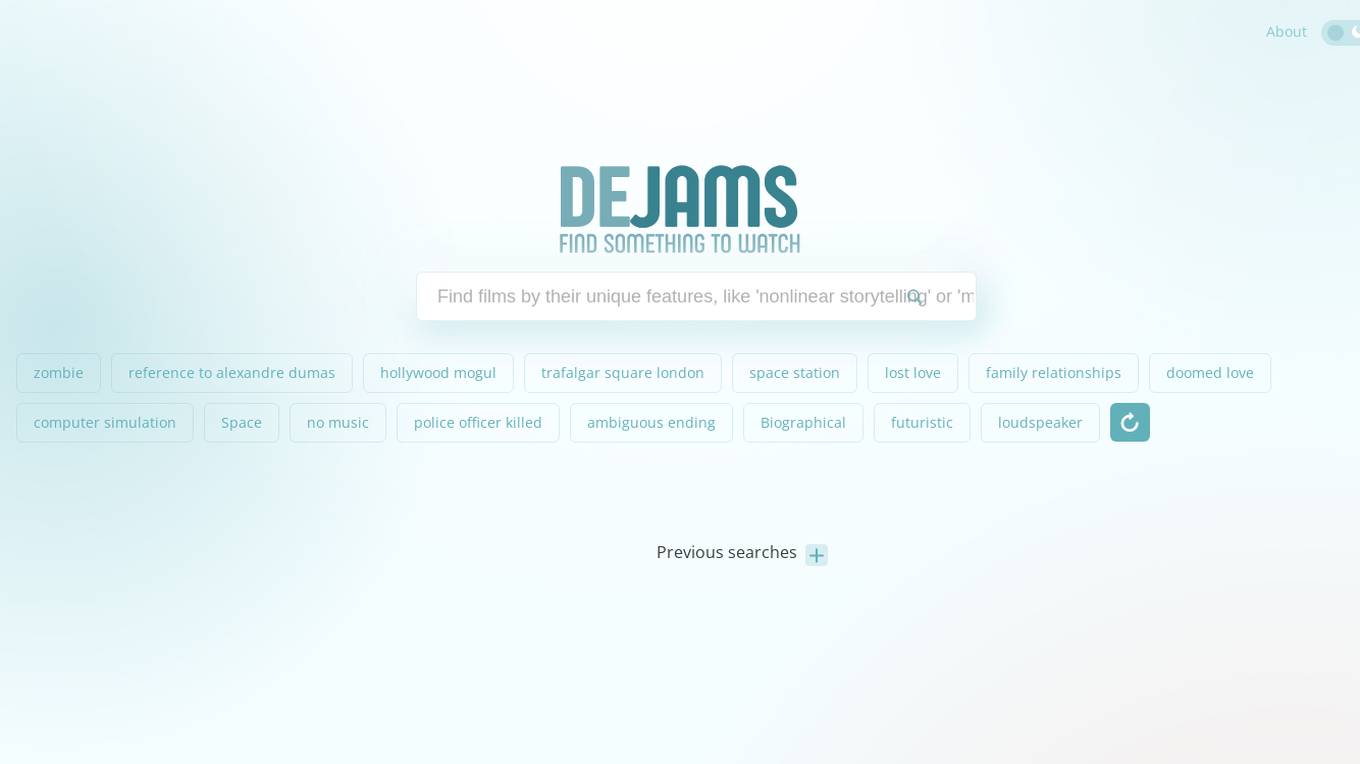
Dejams
Dejams is an AI-enhanced movie search engine that utilizes OpenAI to improve search results. It combines data from various sources such as themoviedb.org, rottentomatoes.com, and imdb.com, along with user-generated content. Dejams also integrates a widget from JustWatch.com to help users find where to watch movies. The website aims to provide the best movie search experience and welcomes user feedback for improvement.
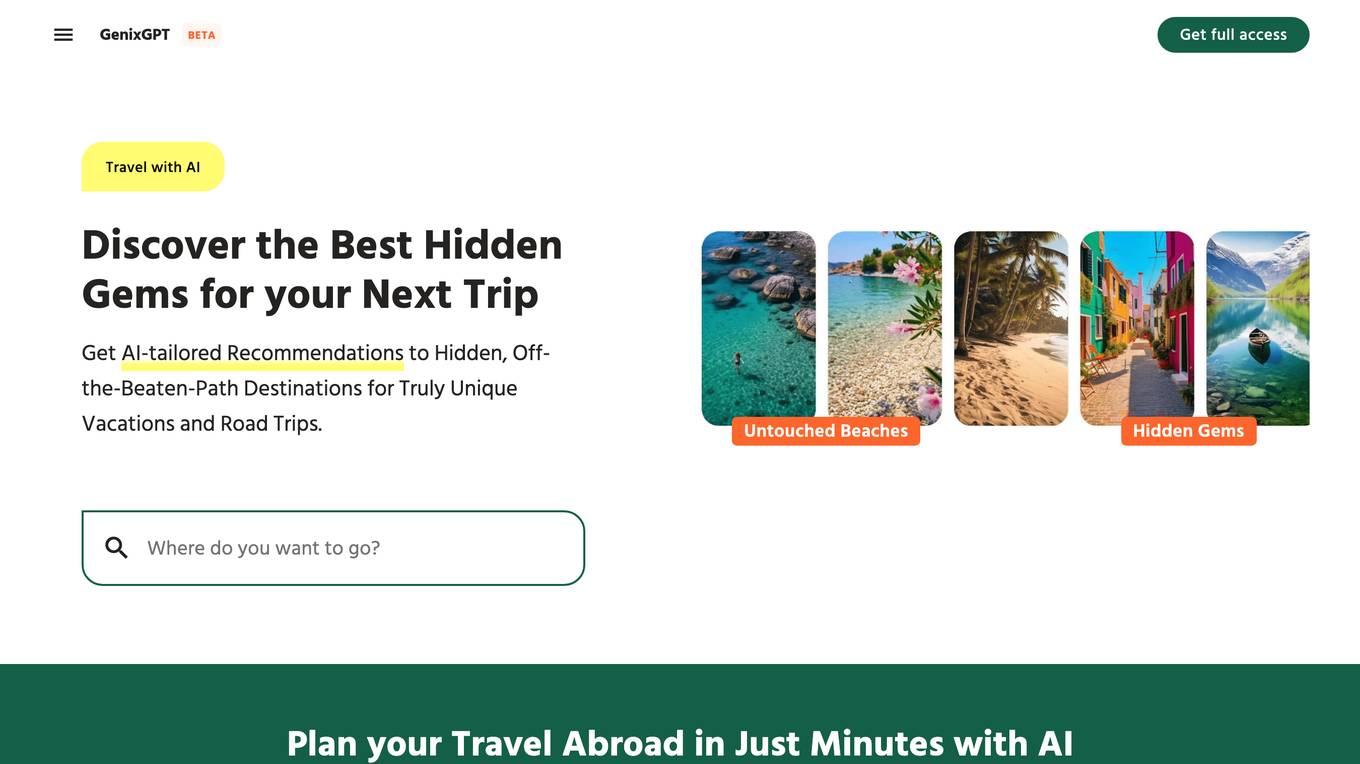
GenixGPT
GenixGPT is an AI-powered travel planner that helps users discover hidden gems and off-the-beaten-path destinations for unique vacations and road trips. It provides personalized recommendations based on the user's preferences and interests. GenixGPT's AI engine analyzes vast amounts of data to uncover spots that align with the user's taste, eliminating the need for sifting through endless search results. The tool allows users to plan their travel abroad in minutes, find destinations they love, seek inspiration for their bucket list, and craft itineraries on the fly.
0 - Open Source AI Tools
20 - OpenAI Gpts
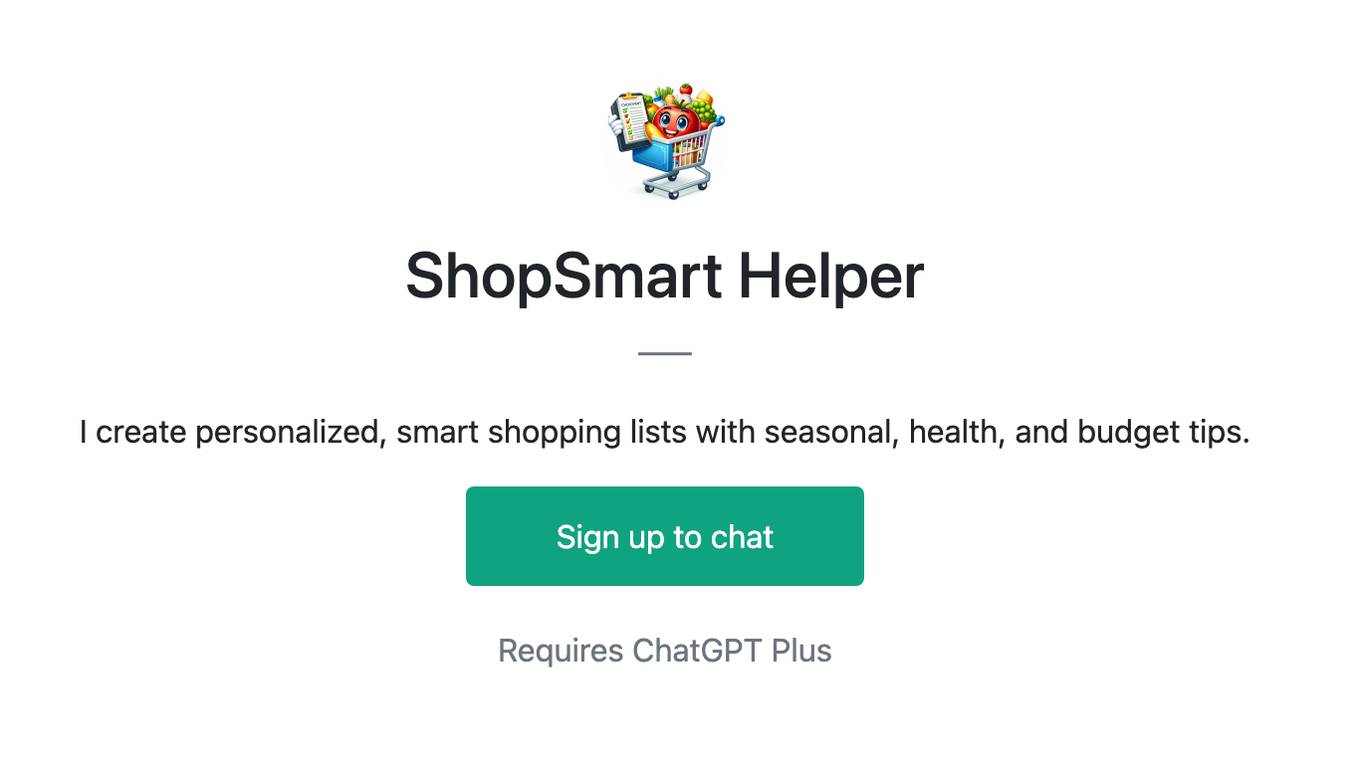
ShopSmart Helper
I create personalized, smart shopping lists with seasonal, health, and budget tips.
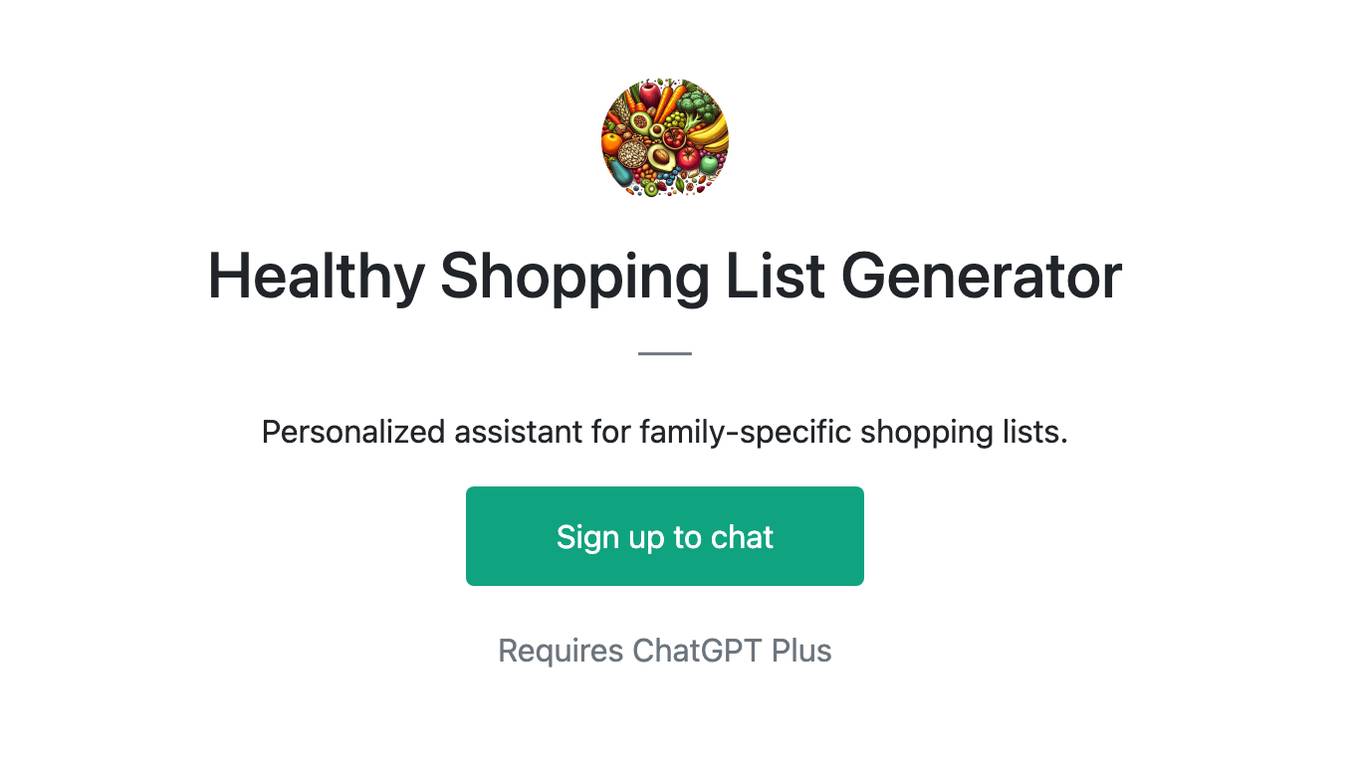
Healthy Shopping List Generator
Personalized assistant for family-specific shopping lists.
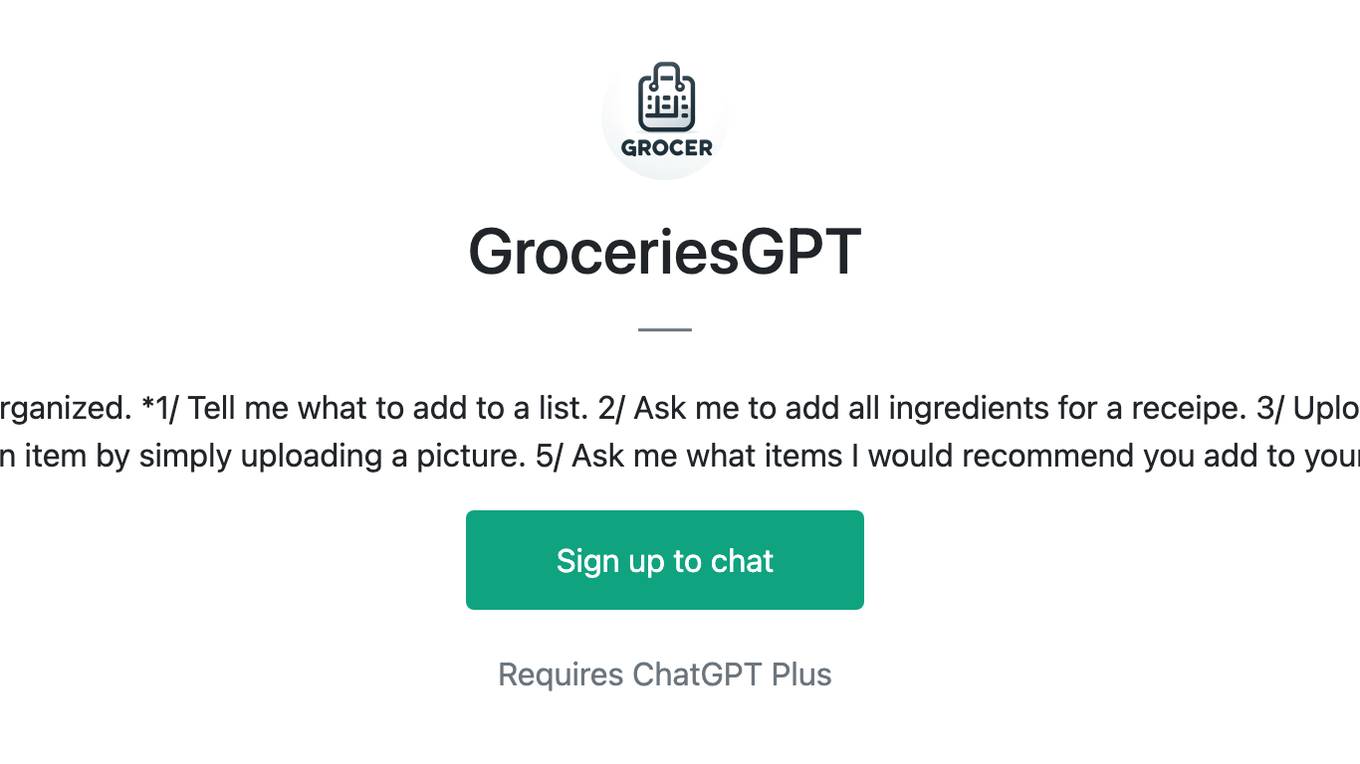
GroceriesGPT
I manage your grocery lists to help you stay organized. *1/ Tell me what to add to a list. 2/ Ask me to add all ingredients for a receipe. 3/ Upload a receipt to remove items from your lists 4/ Add an item by simply uploading a picture. 5/ Ask me what items I would recommend you add to your lists.*
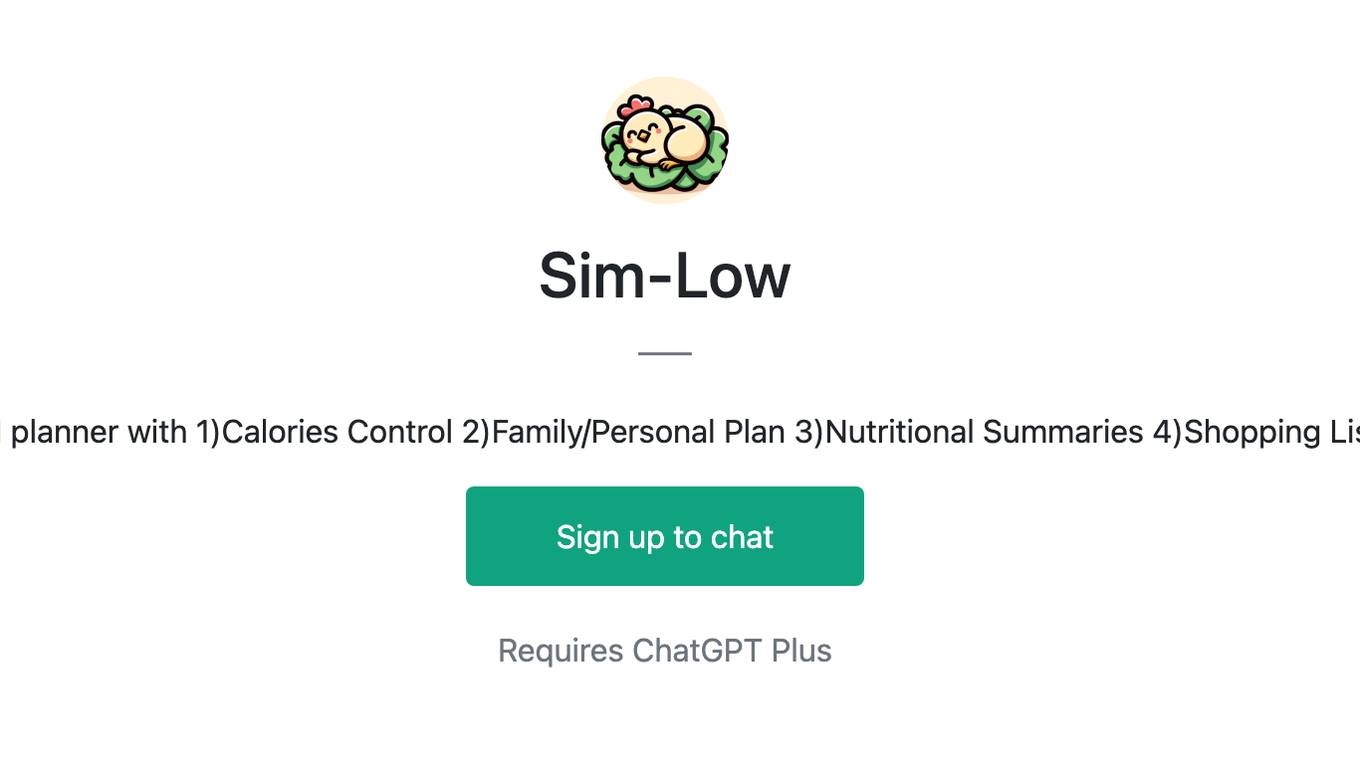
Sim-Low
Meal planner with 1)Calories Control 2)Family/Personal Plan 3)Nutritional Summaries 4)Shopping Lists
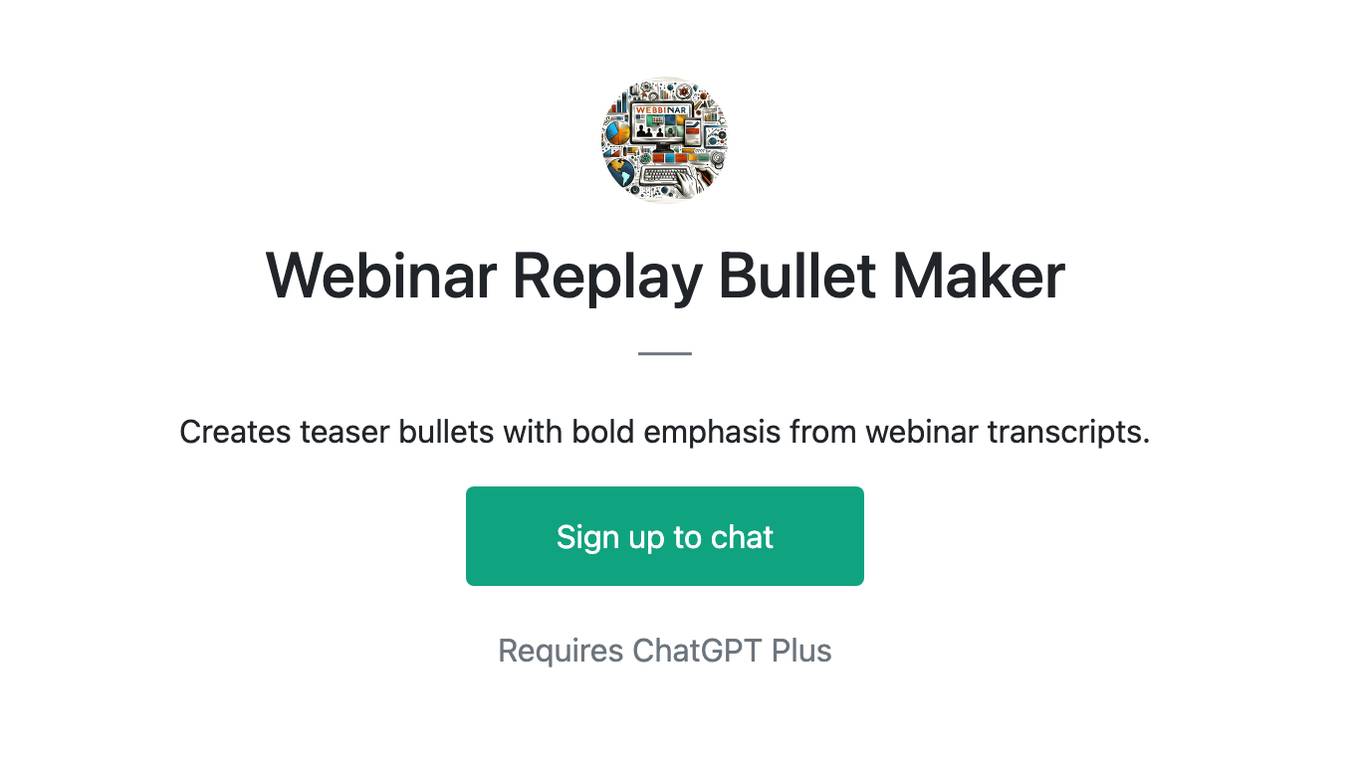
Webinar Replay Bullet Maker
Creates teaser bullets with bold emphasis from webinar transcripts.
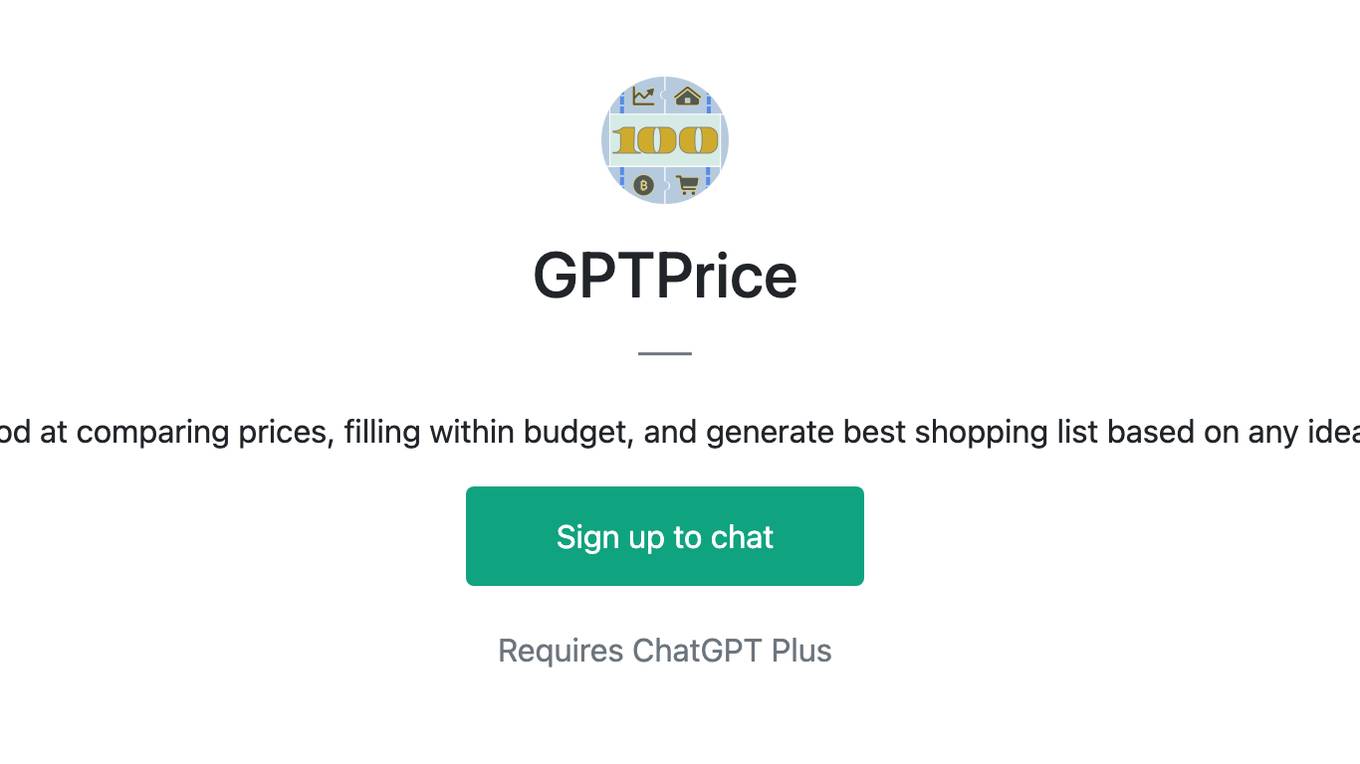
GPTPrice
Good at comparing prices, filling within budget, and generate best shopping list based on any idea.
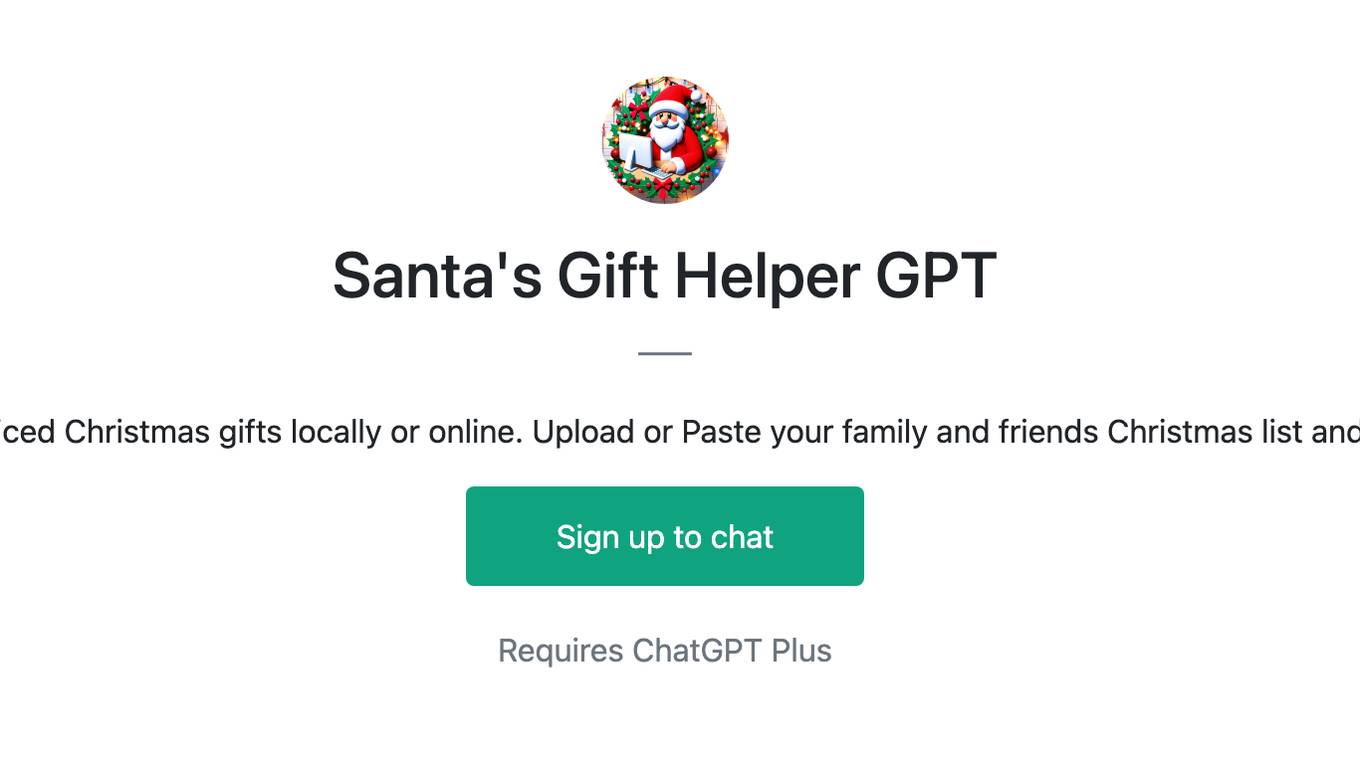
Santa's Gift Helper GPT
I find the best-priced Christmas gifts locally or online. Upload or Paste your family and friends Christmas list and your zip code.

" Takuta Kai "
Kairangatira, whakarato tikanga maimoatanga kai, Whakawhanakehia te tahua kia rite ki nga whaainga ::: Te reo Maori
